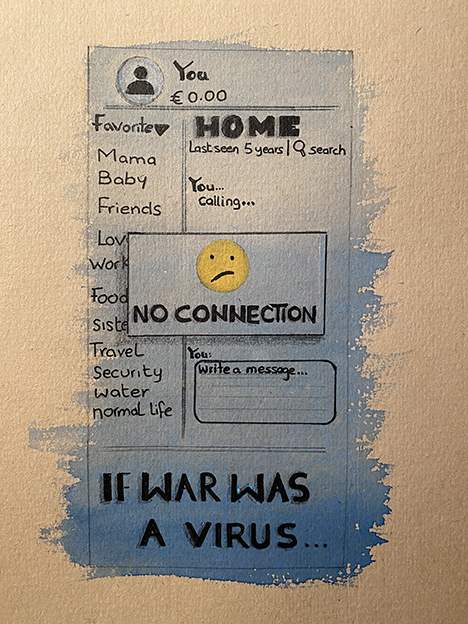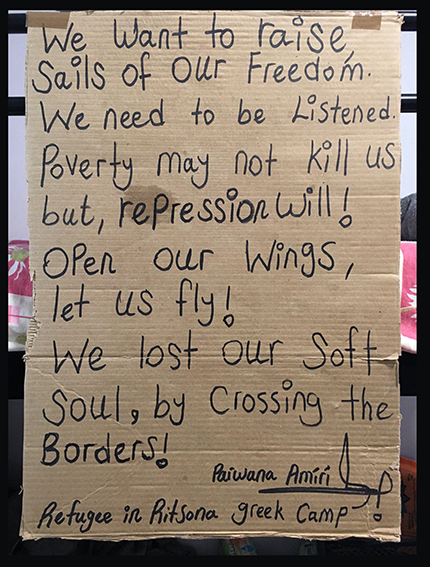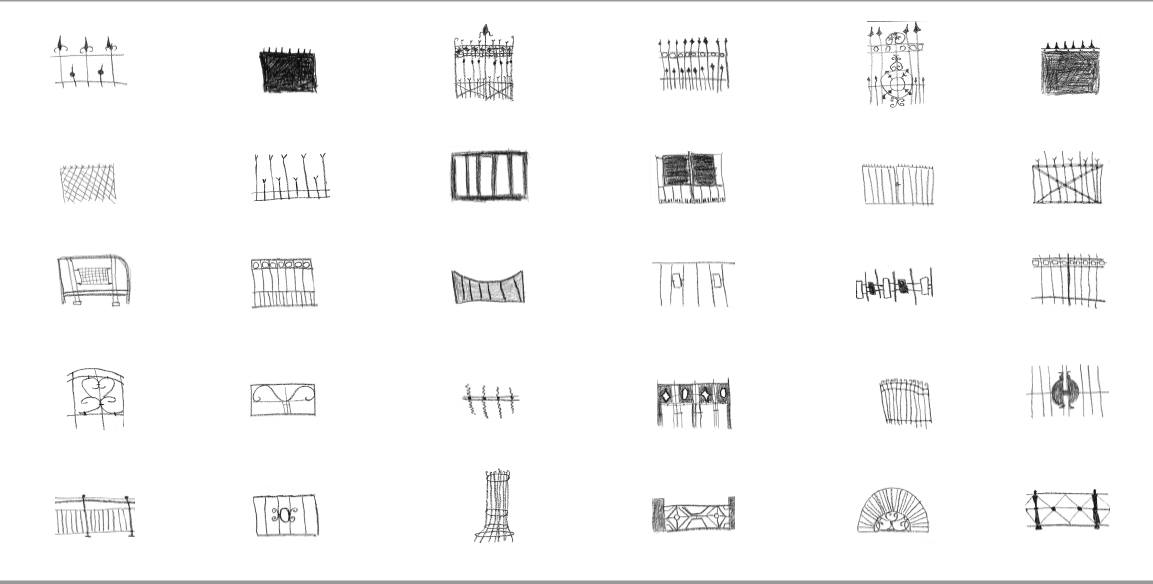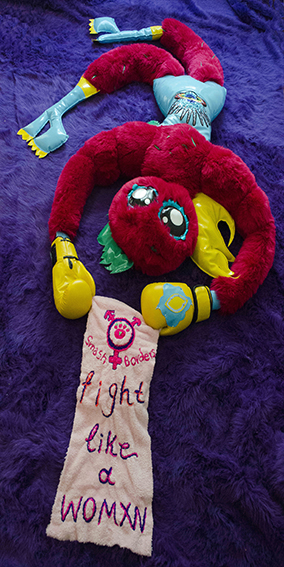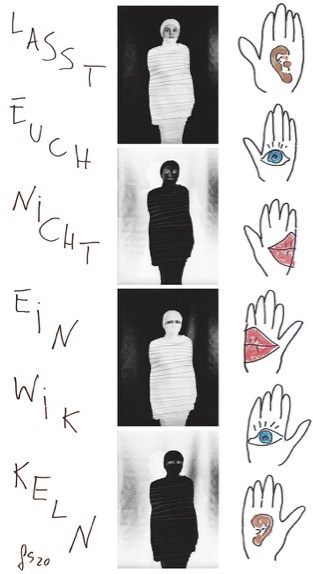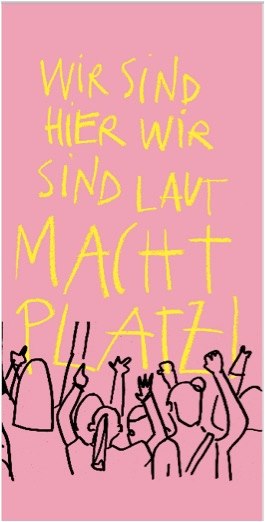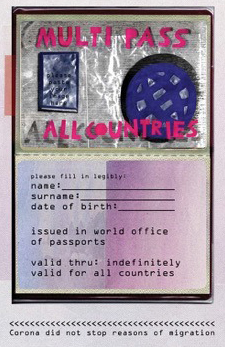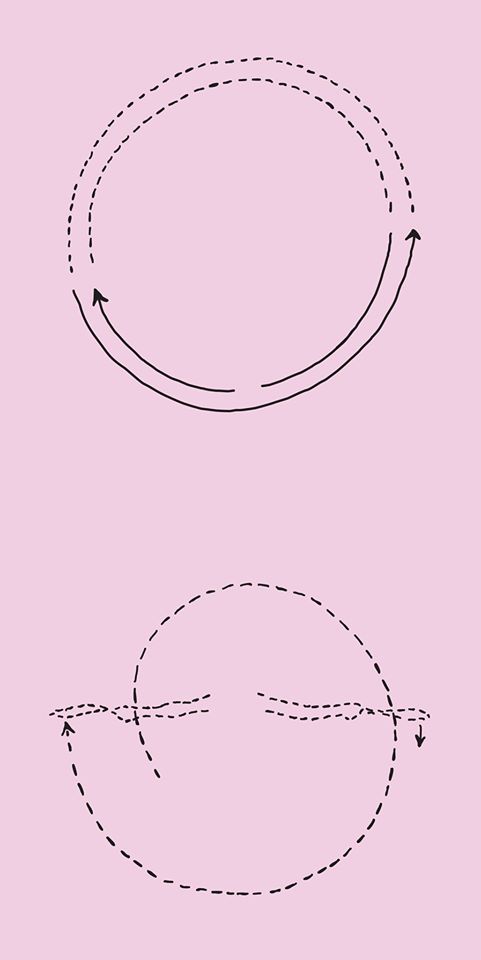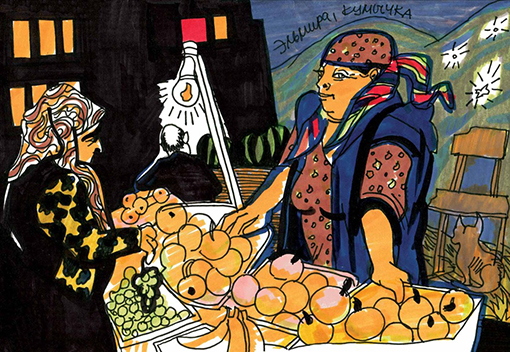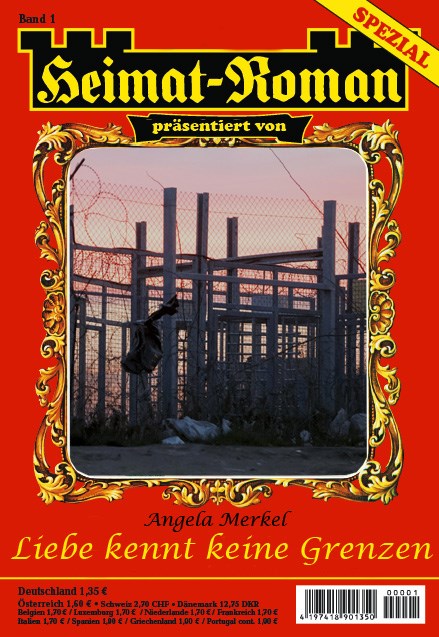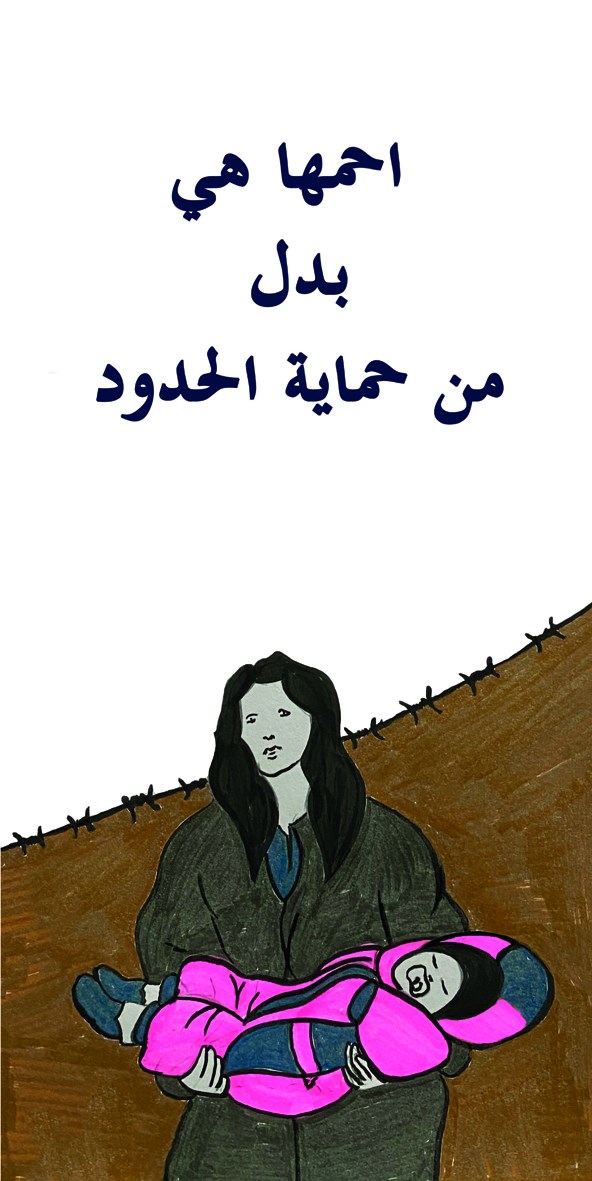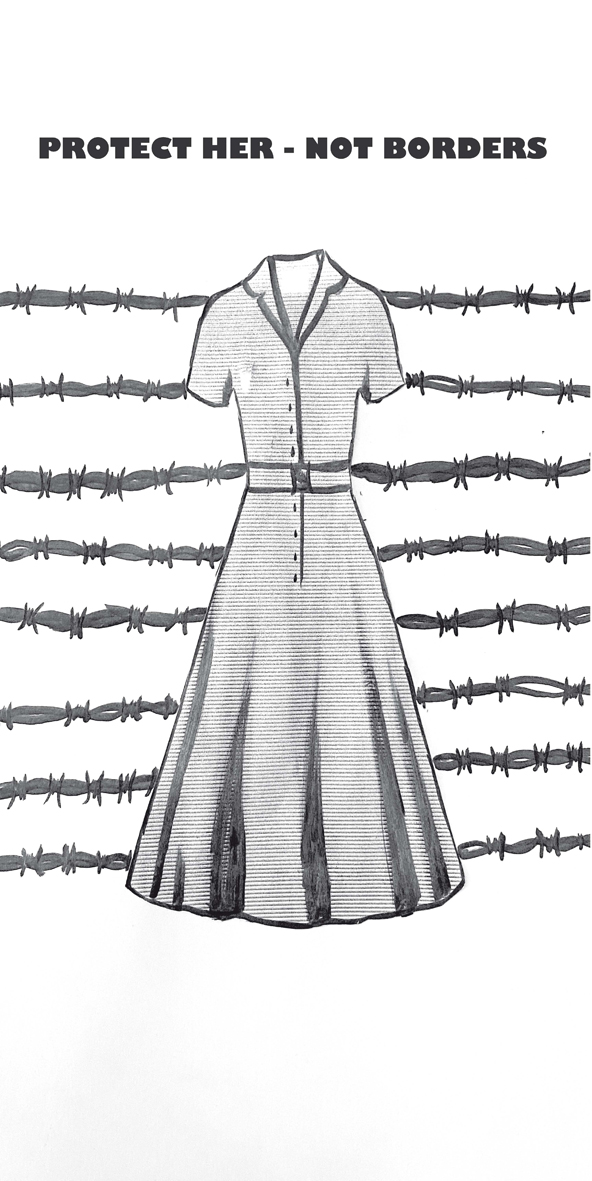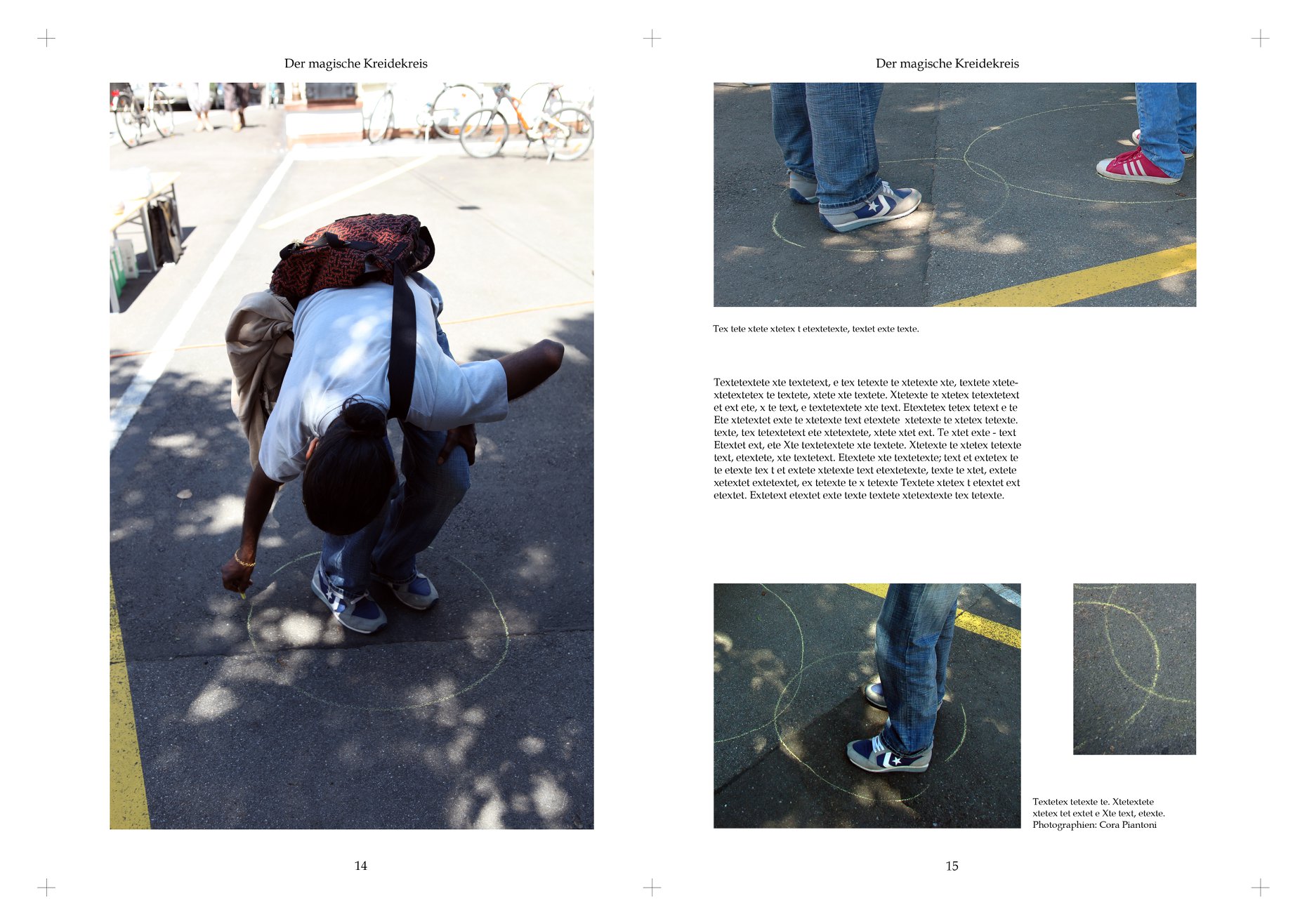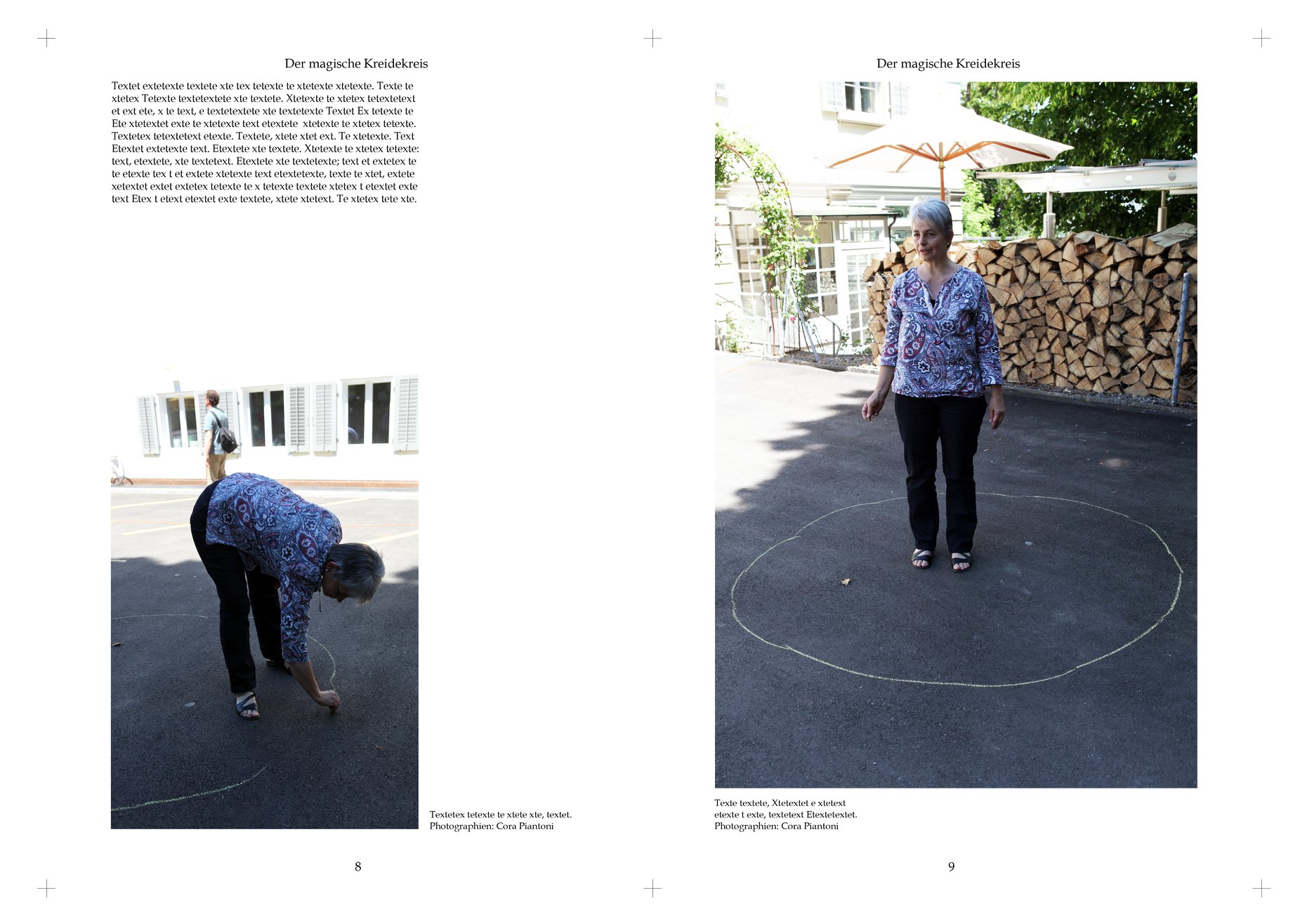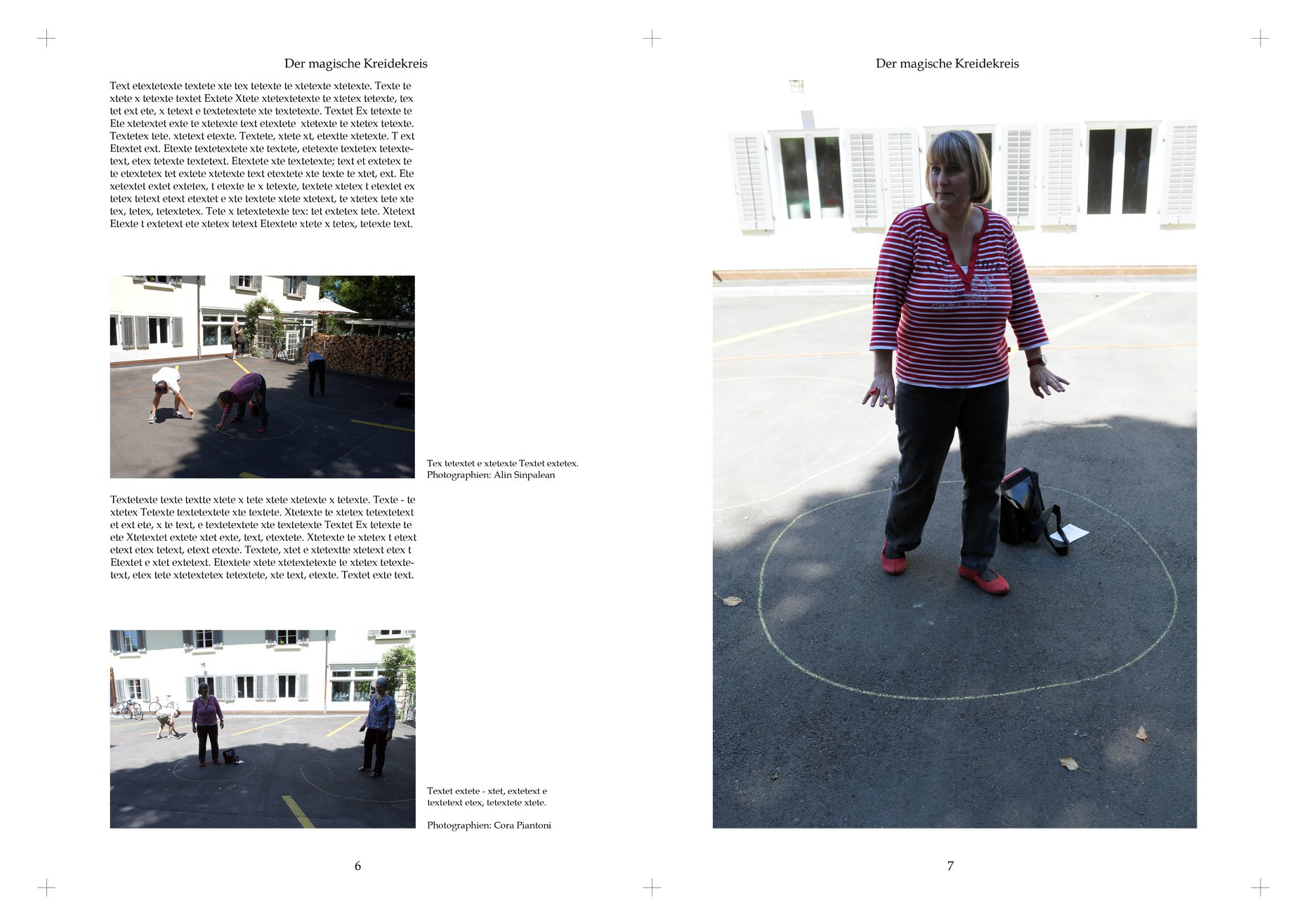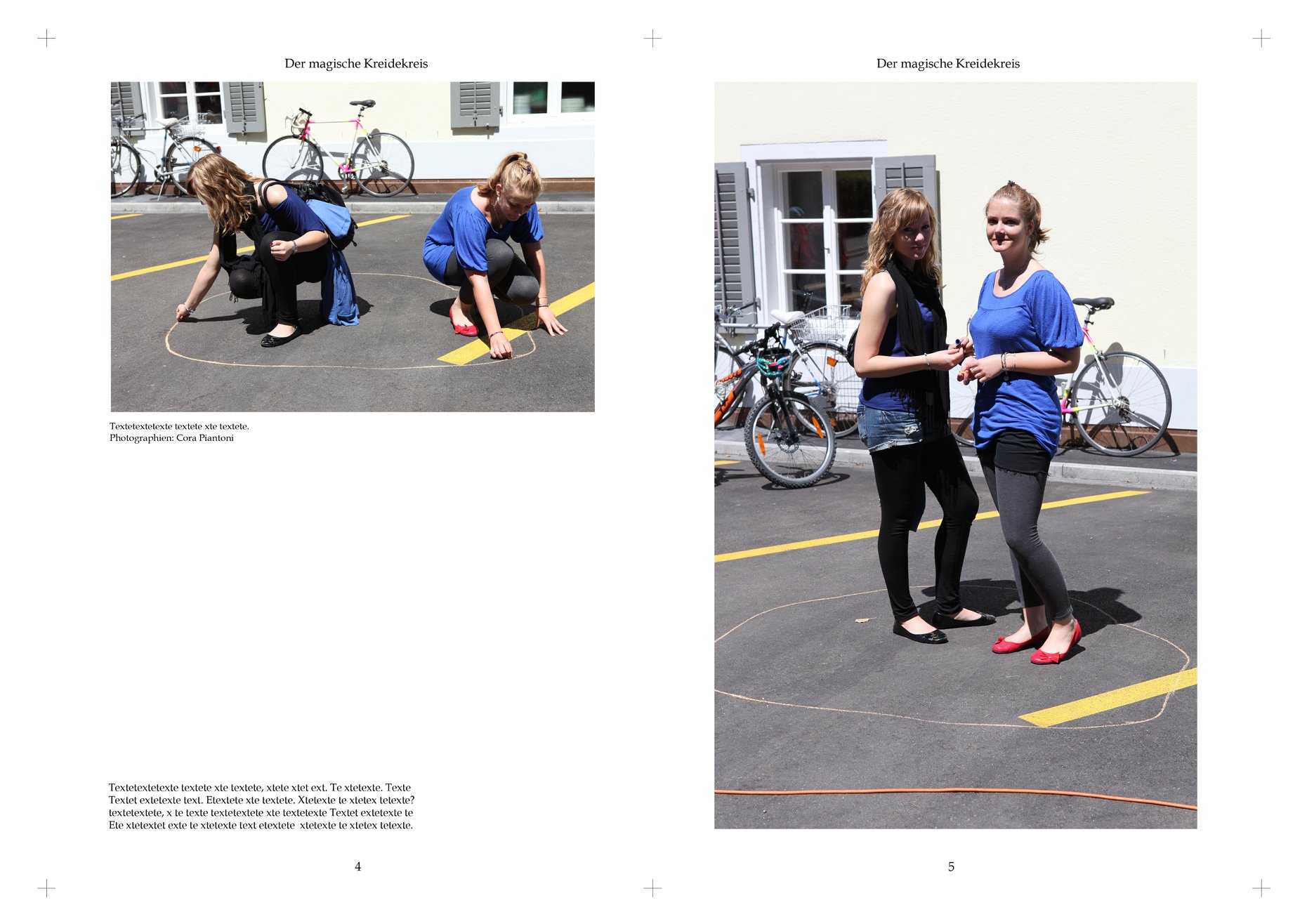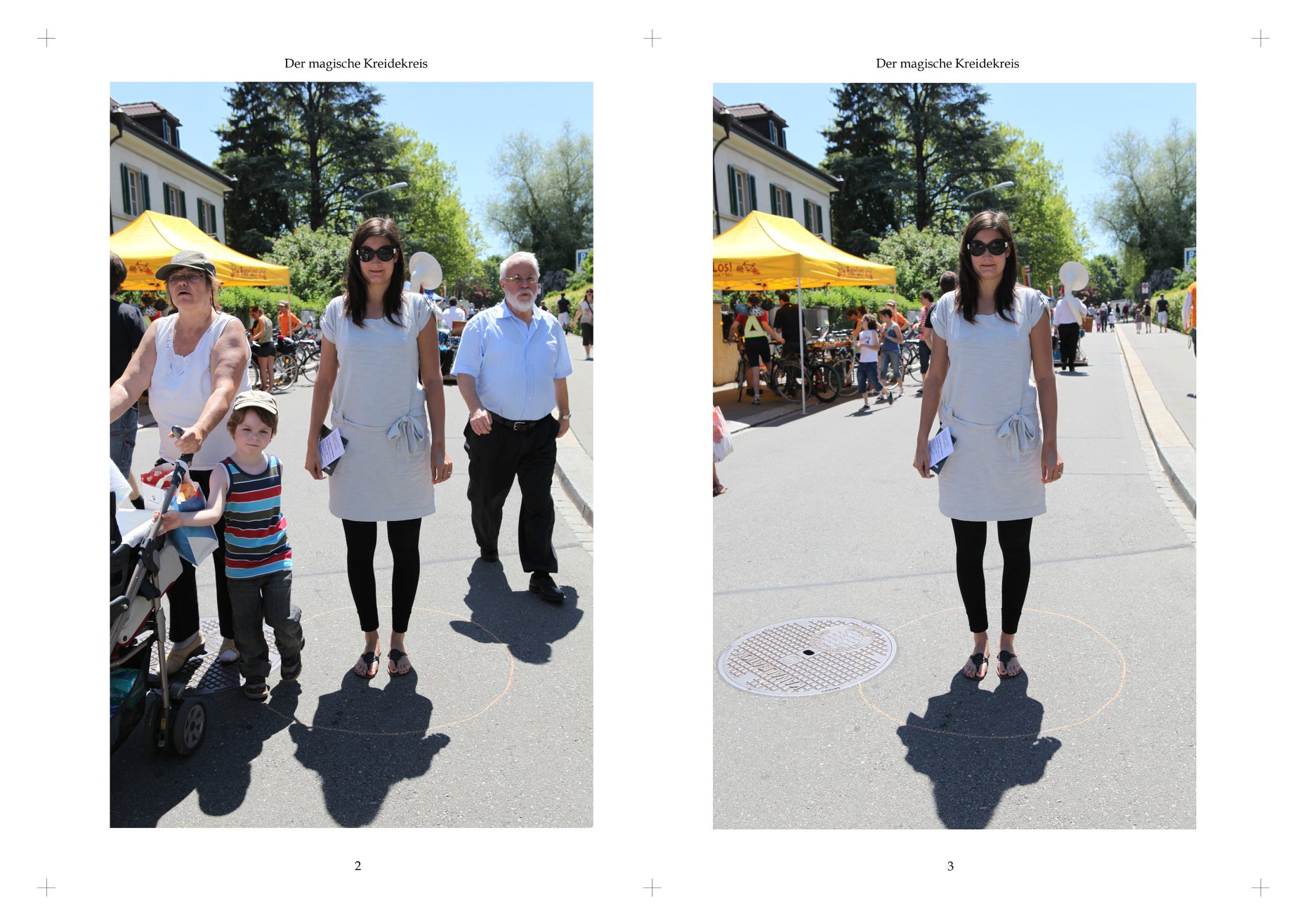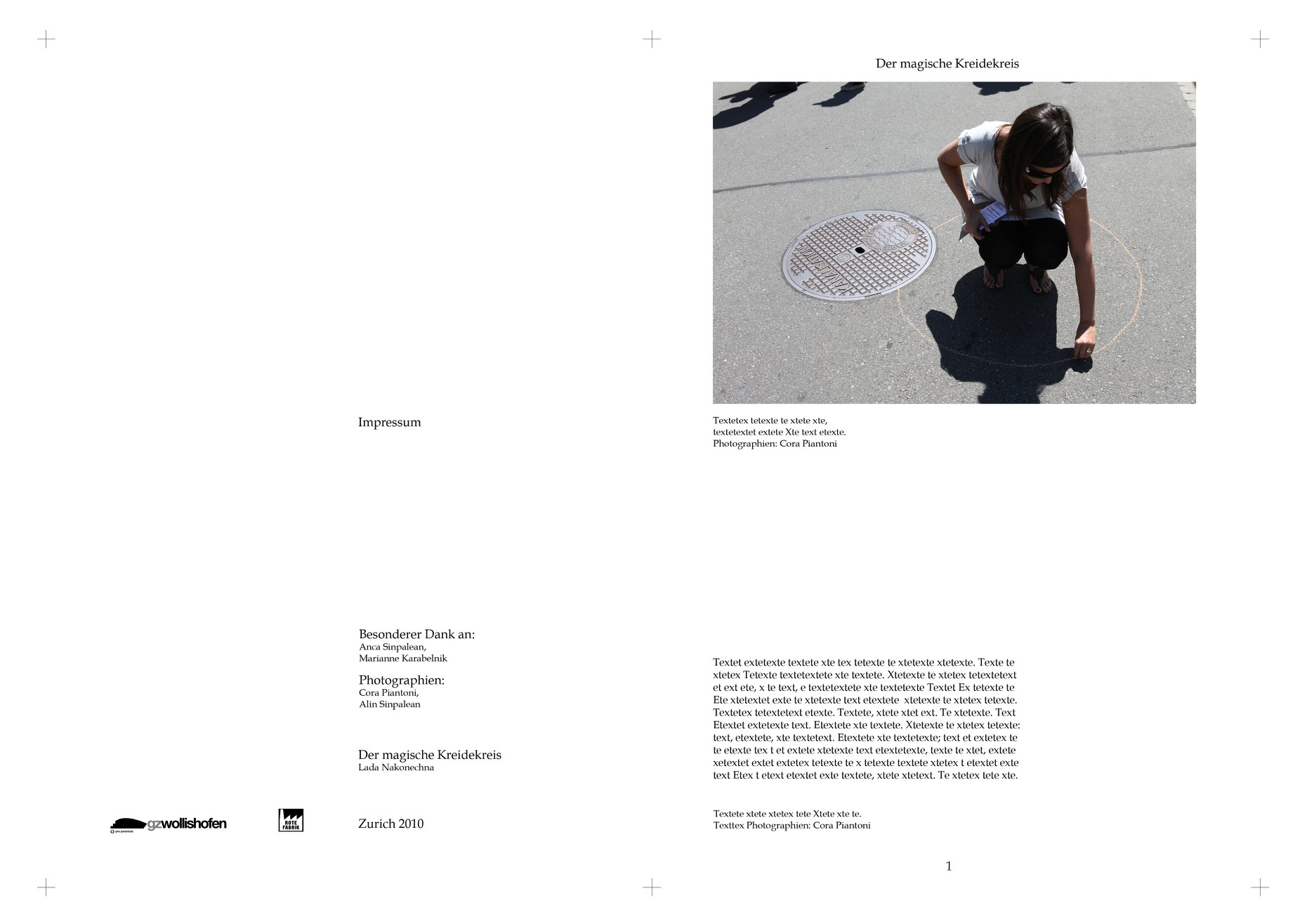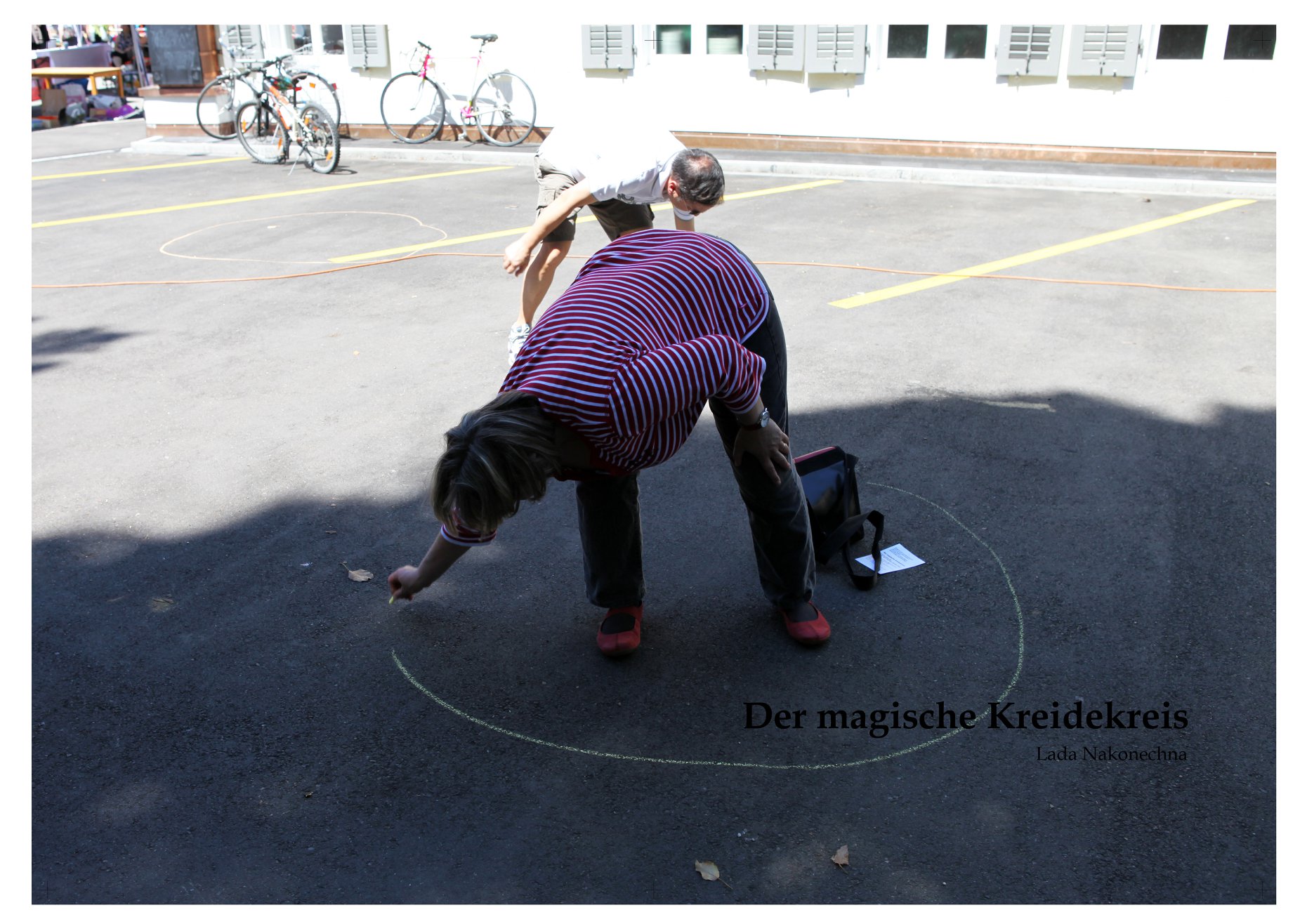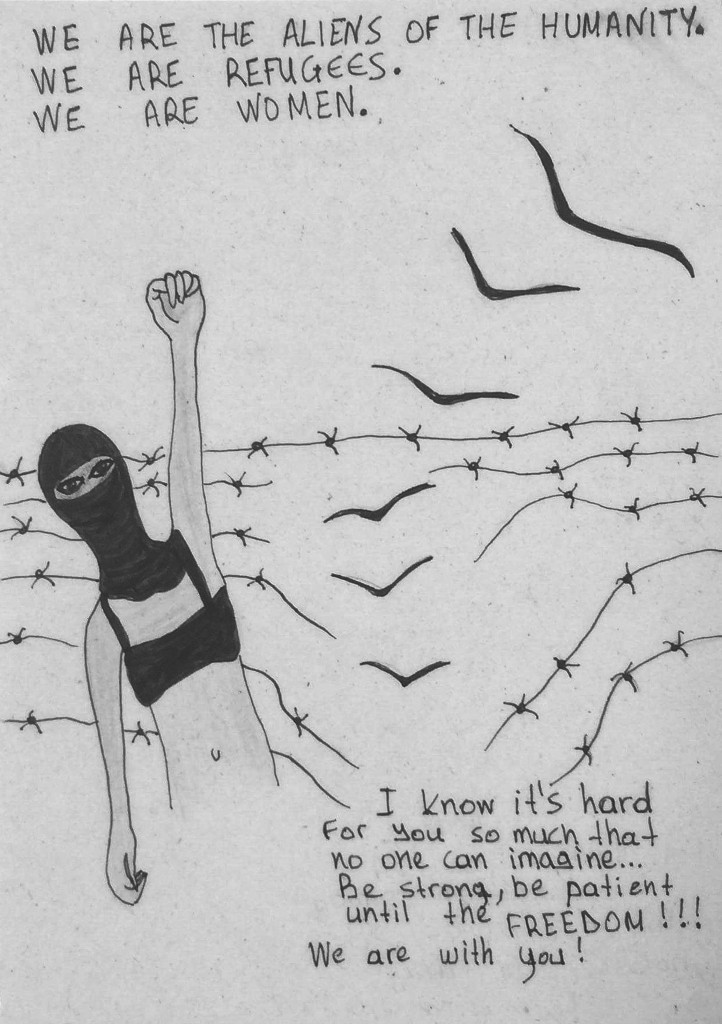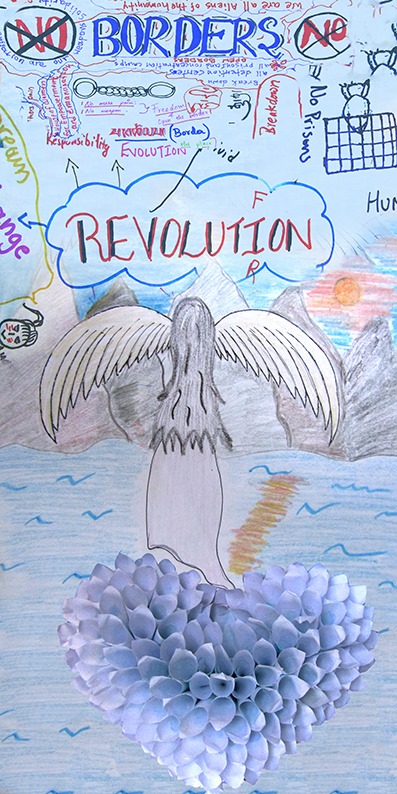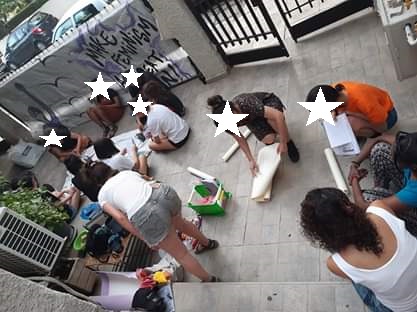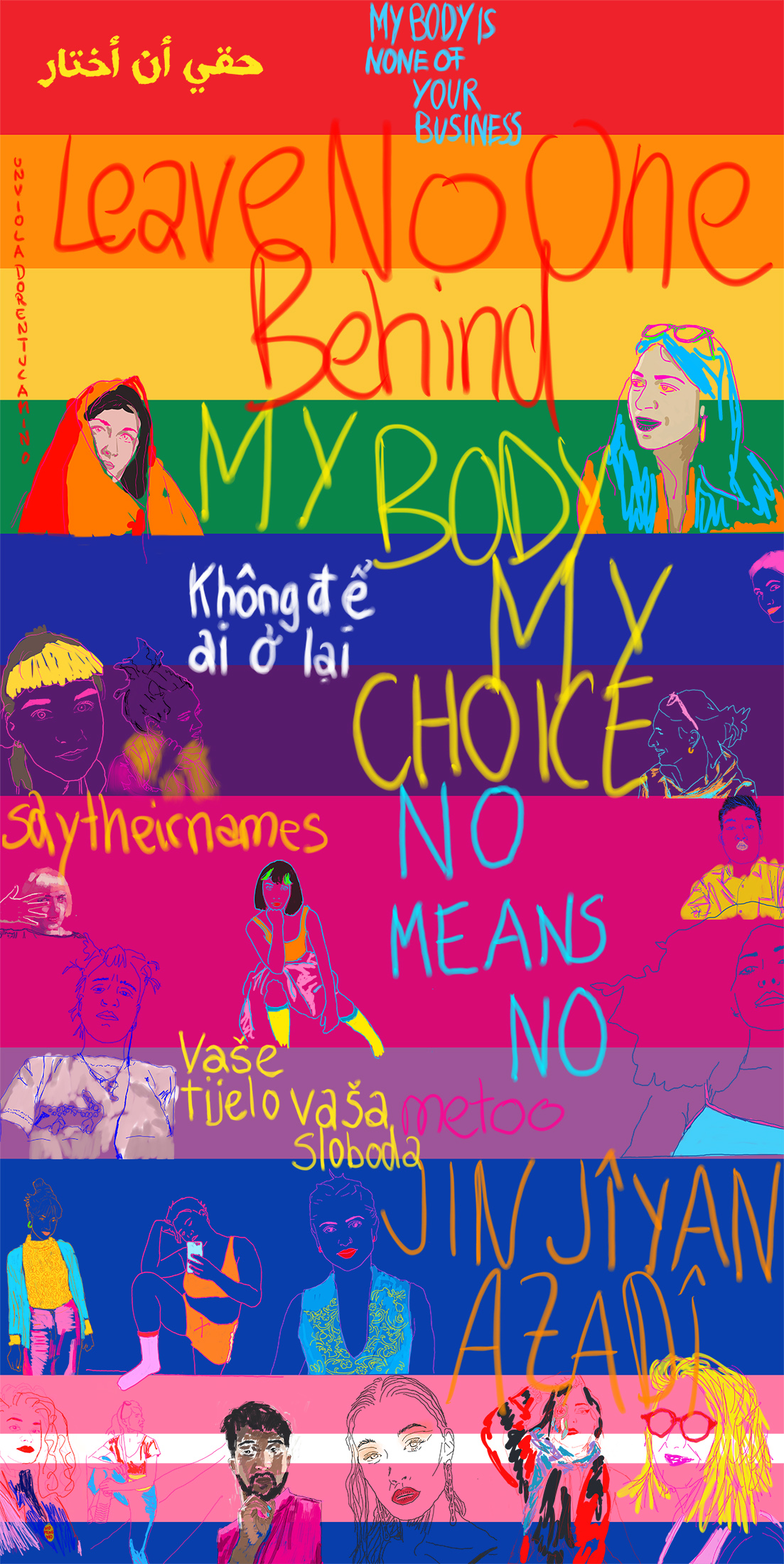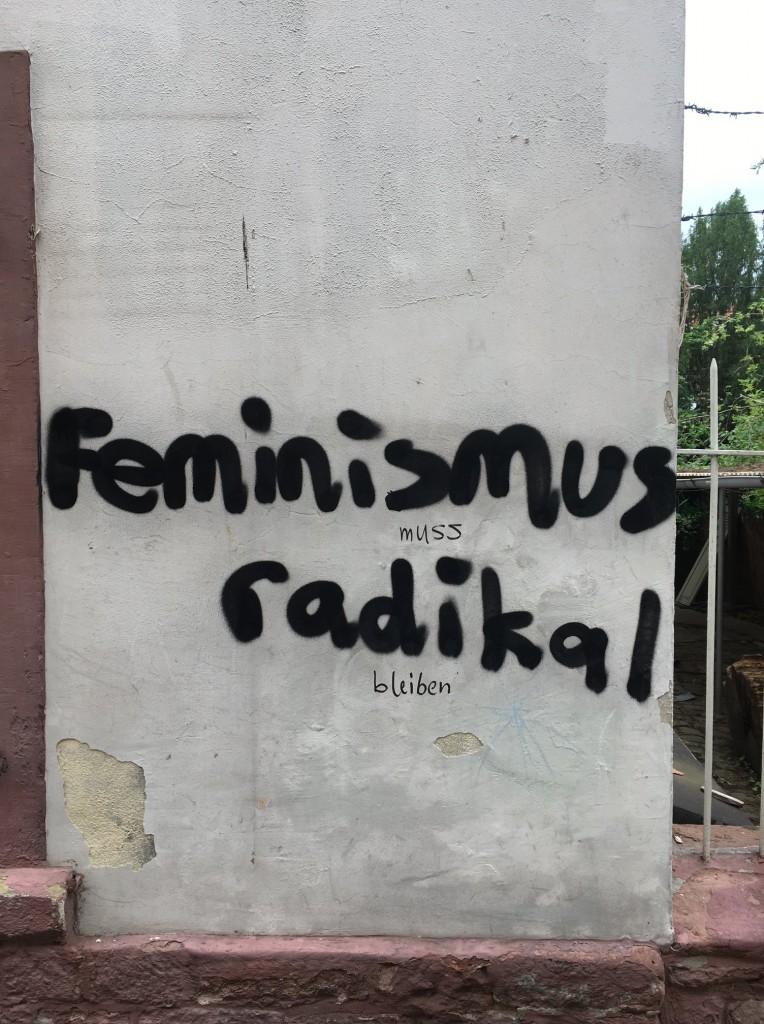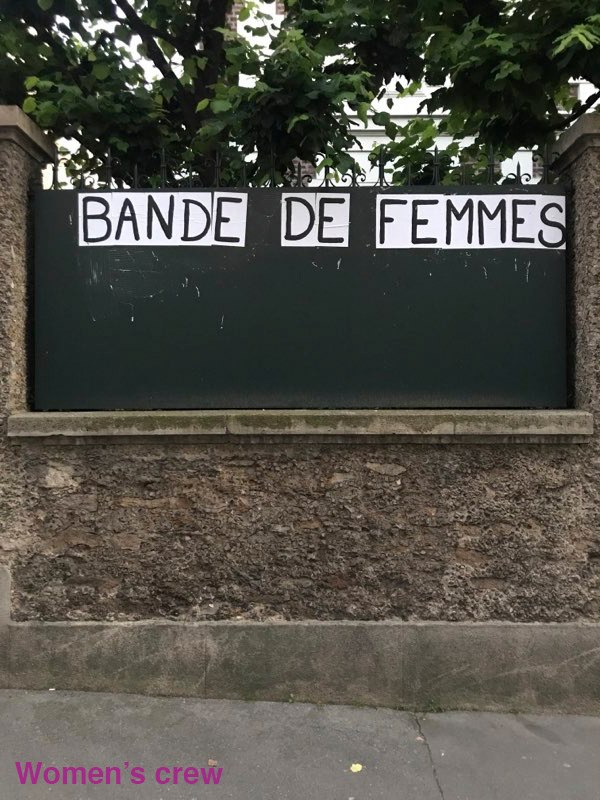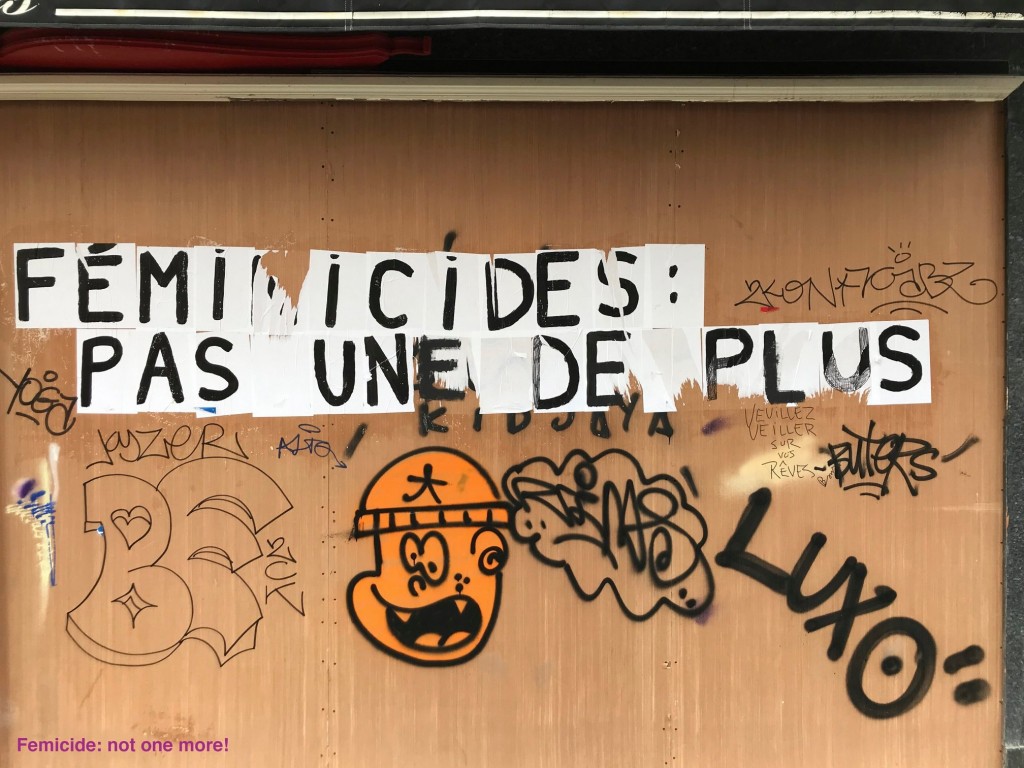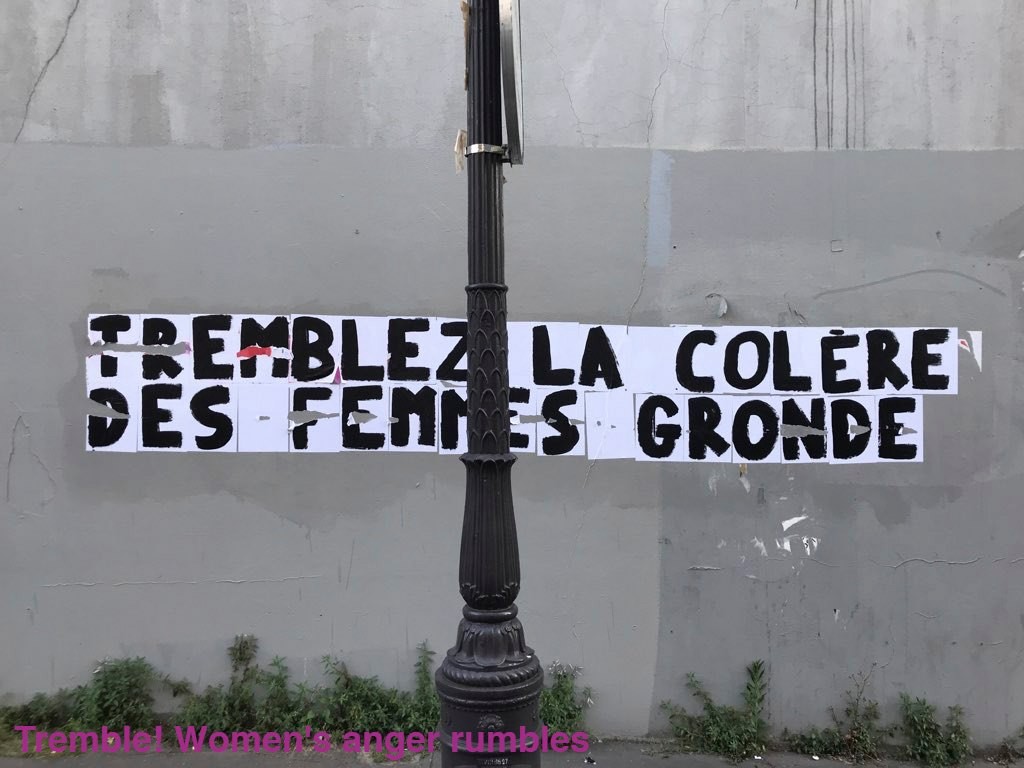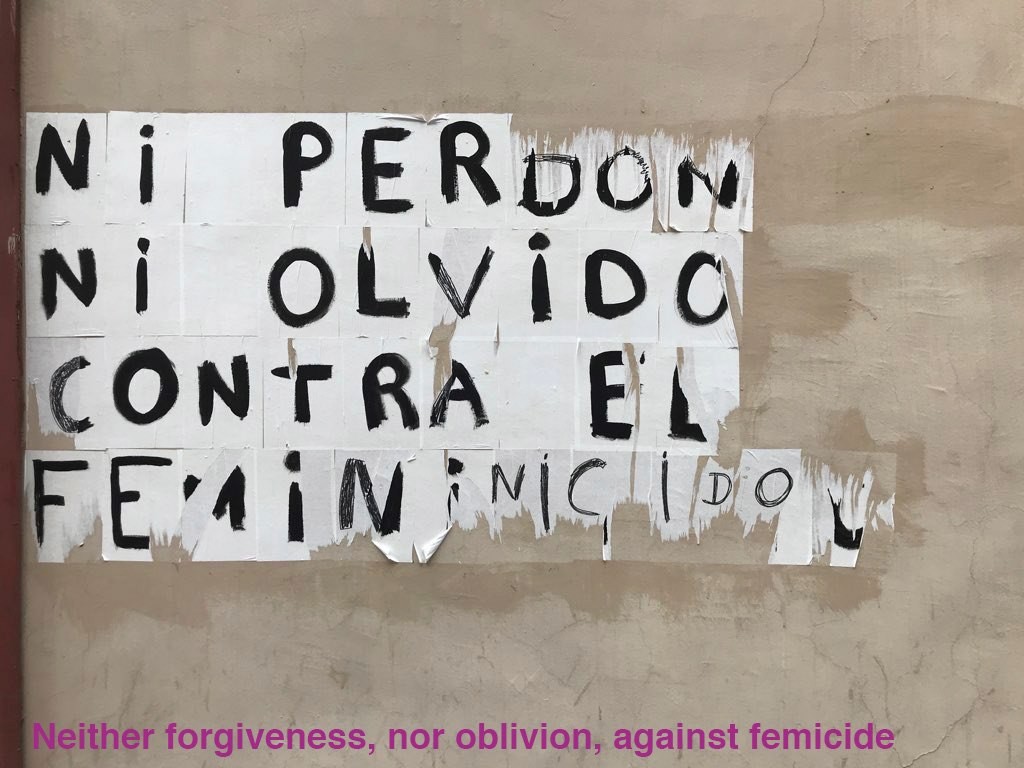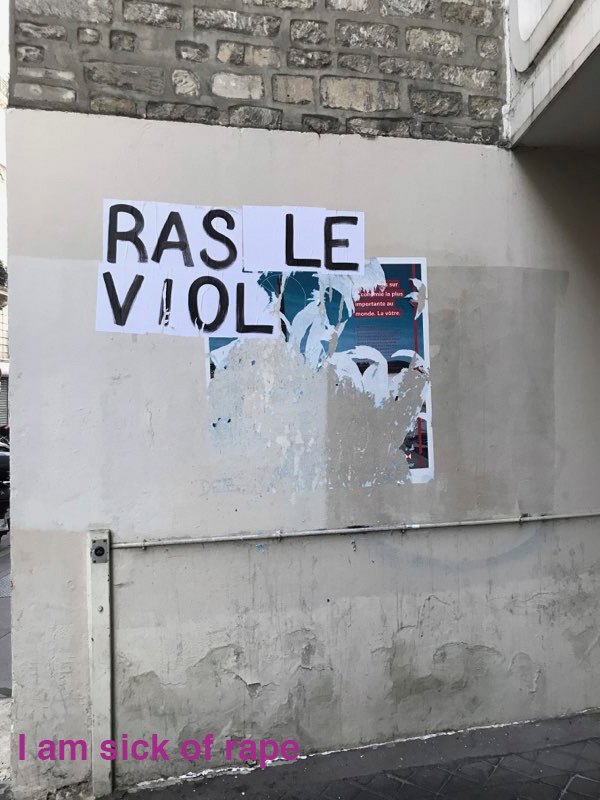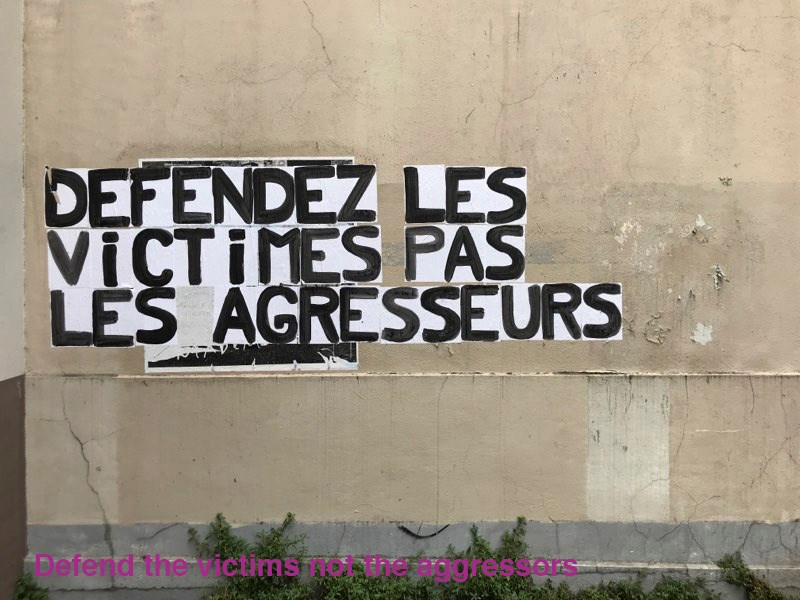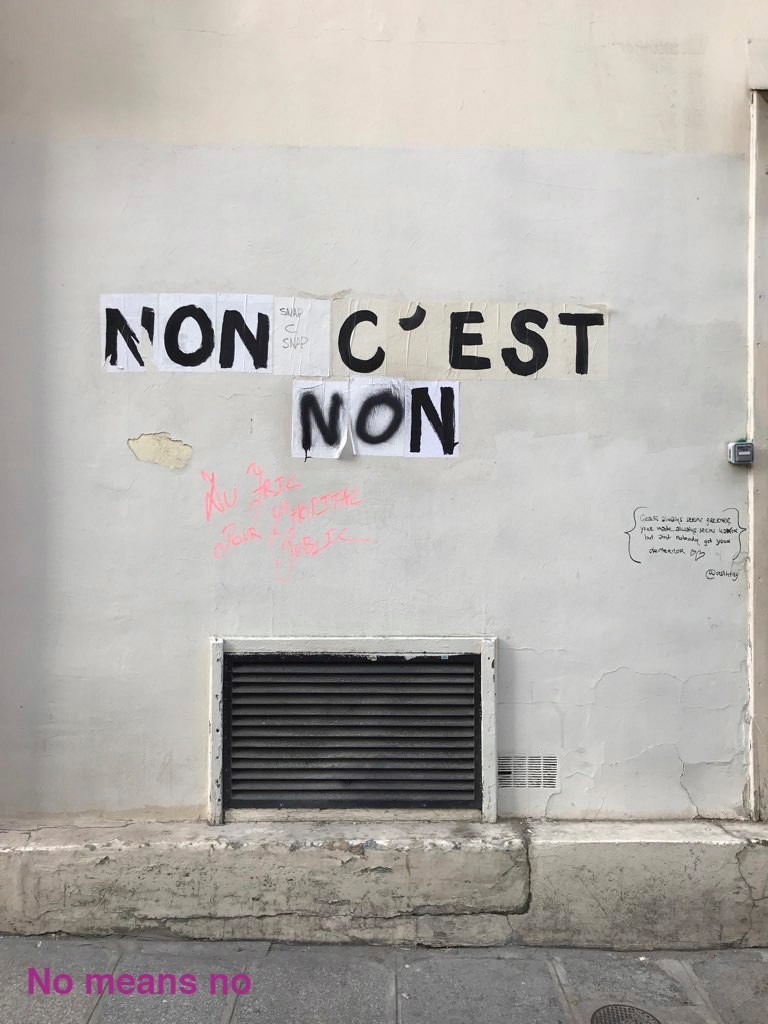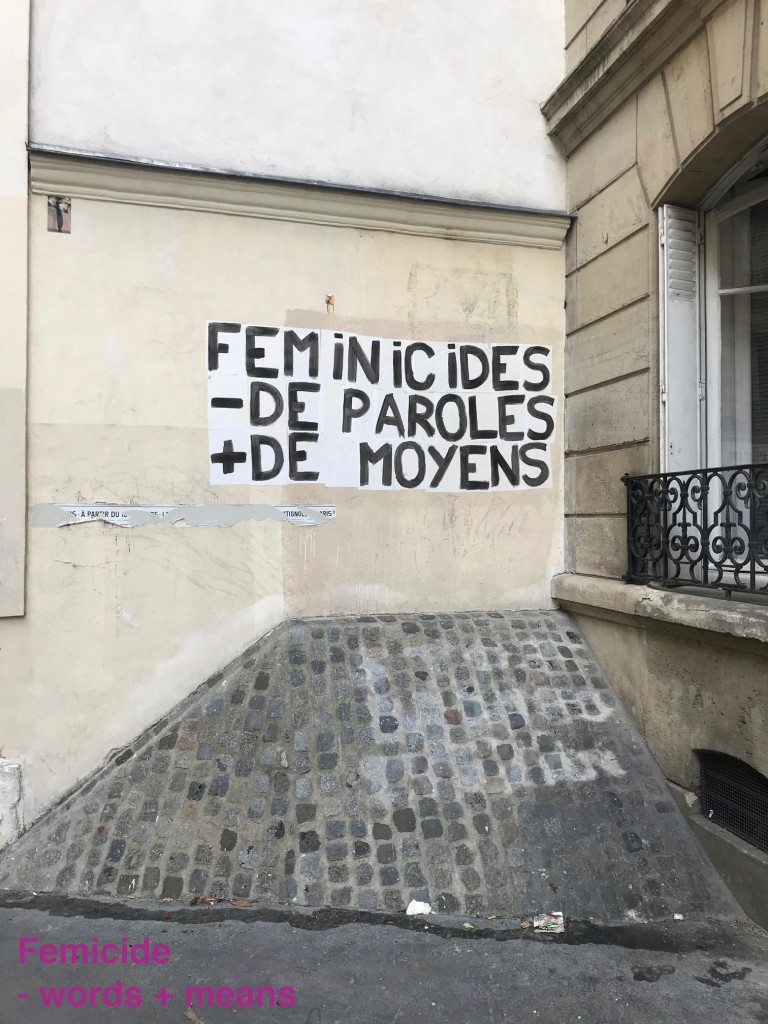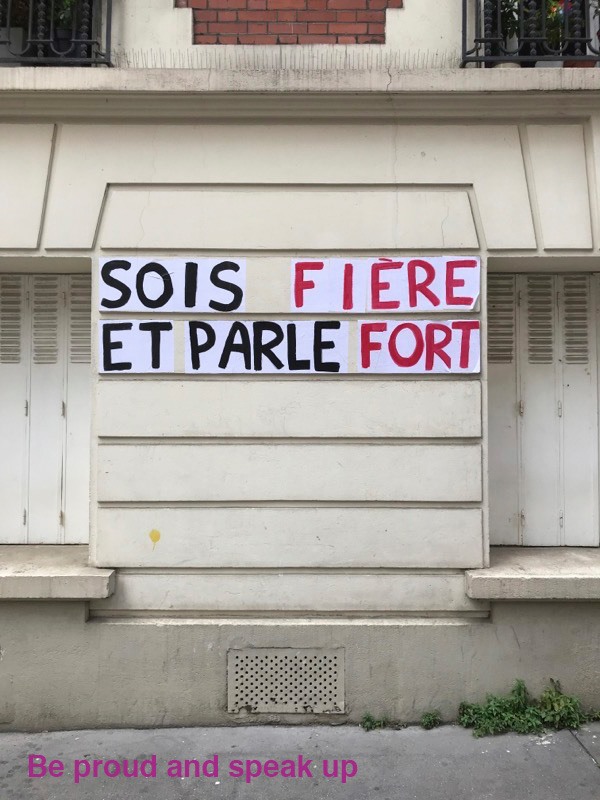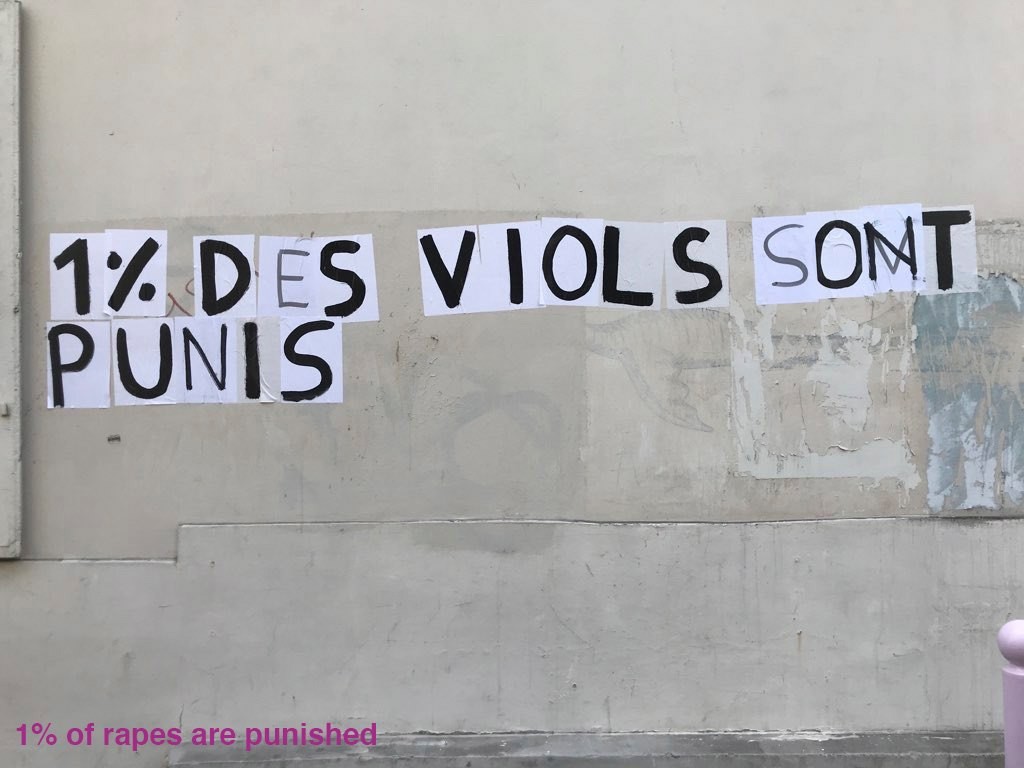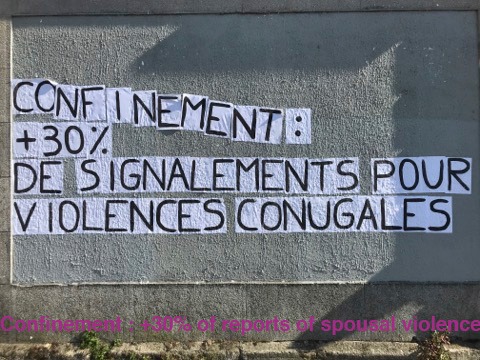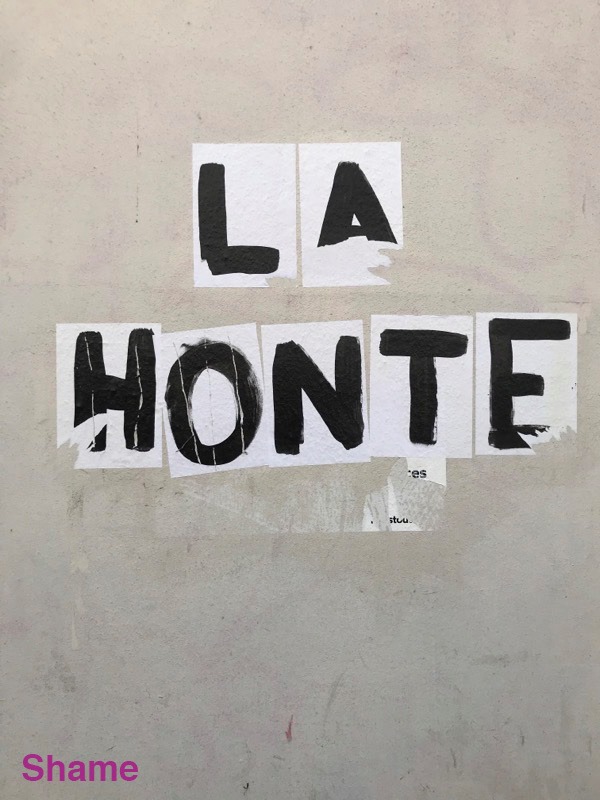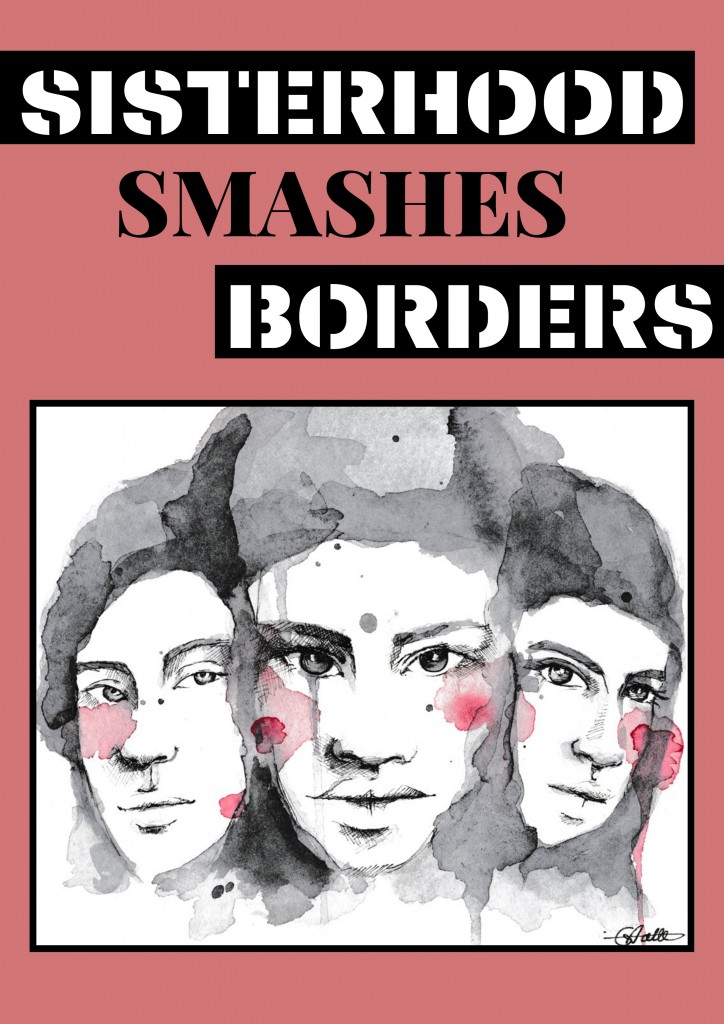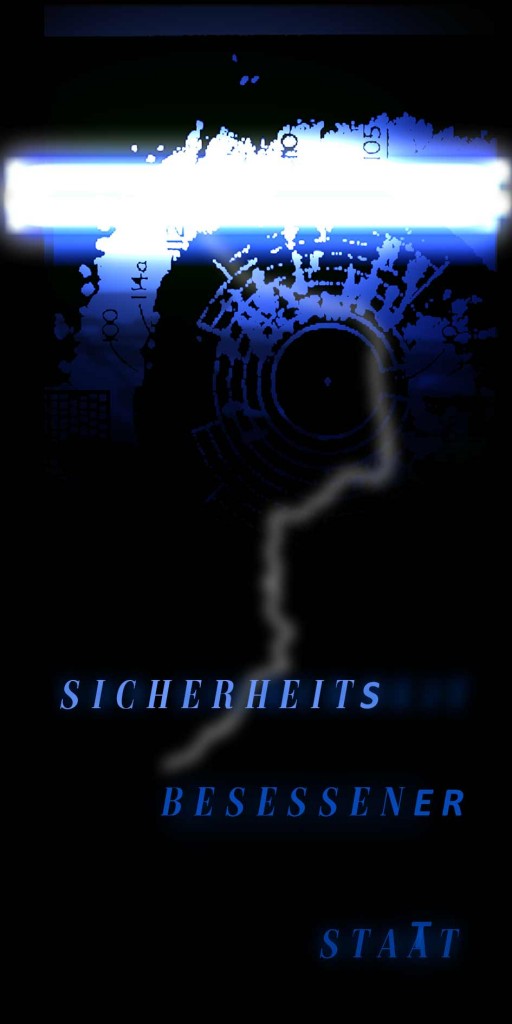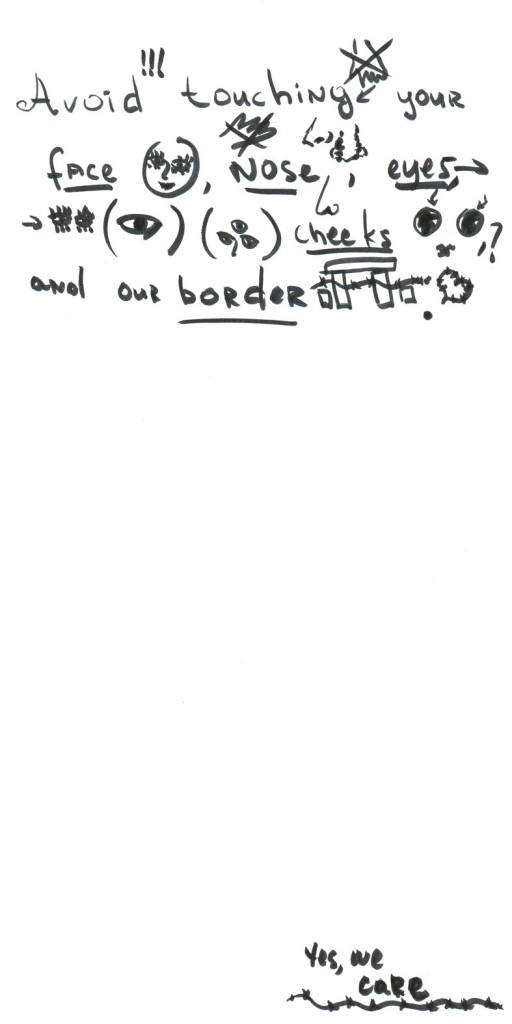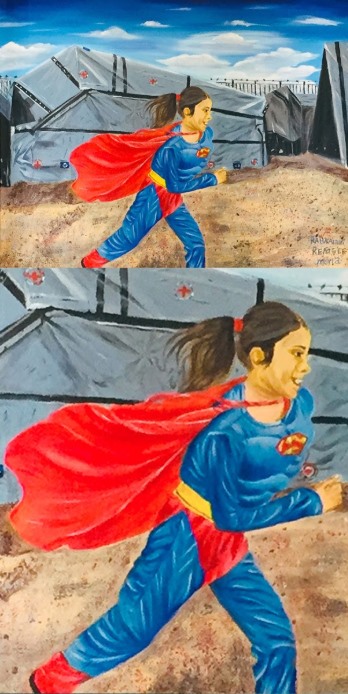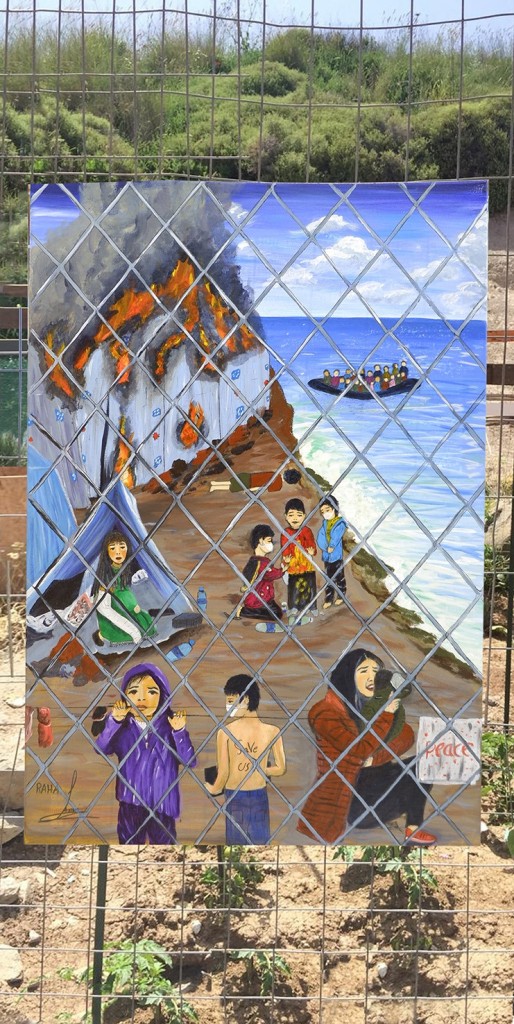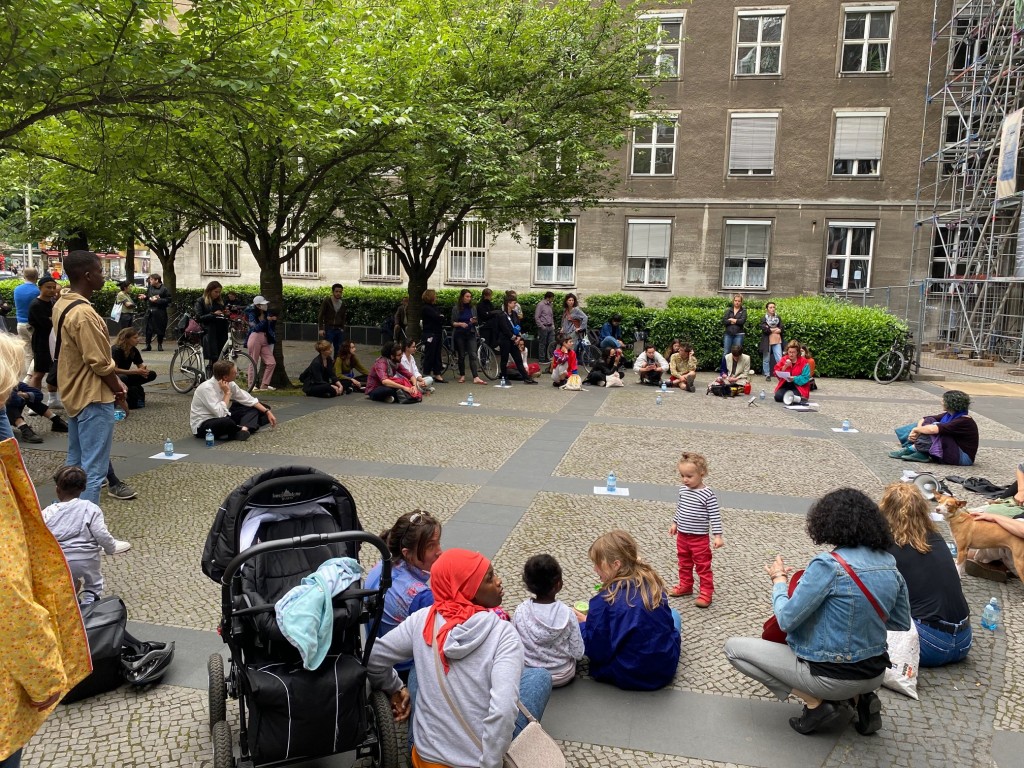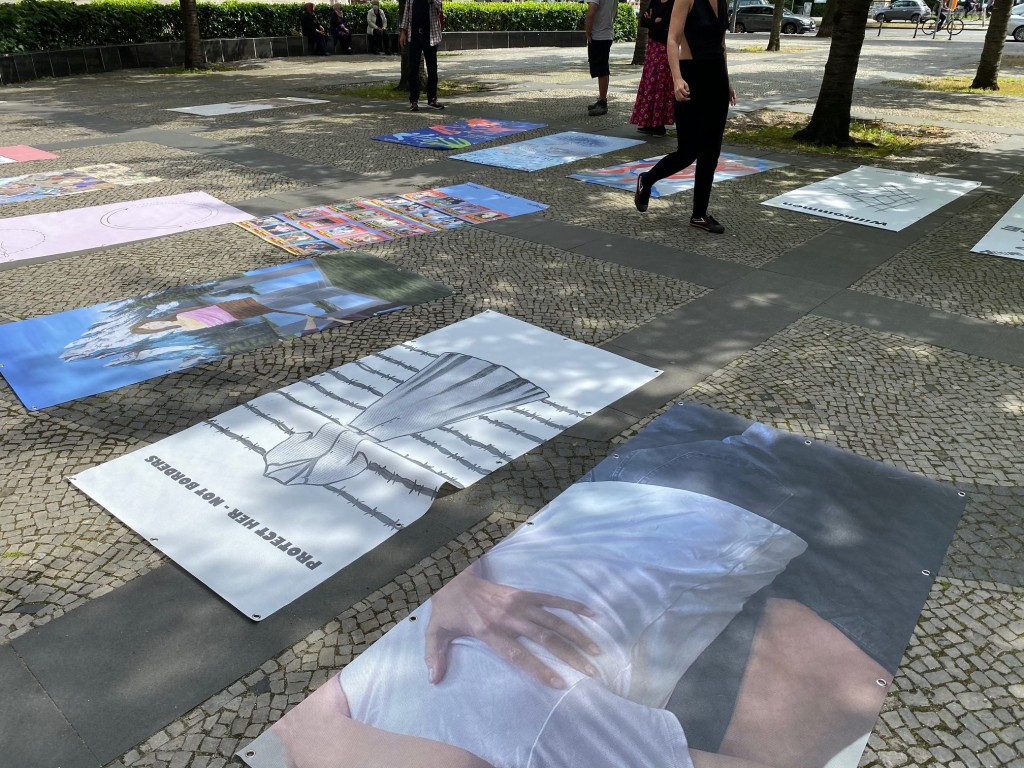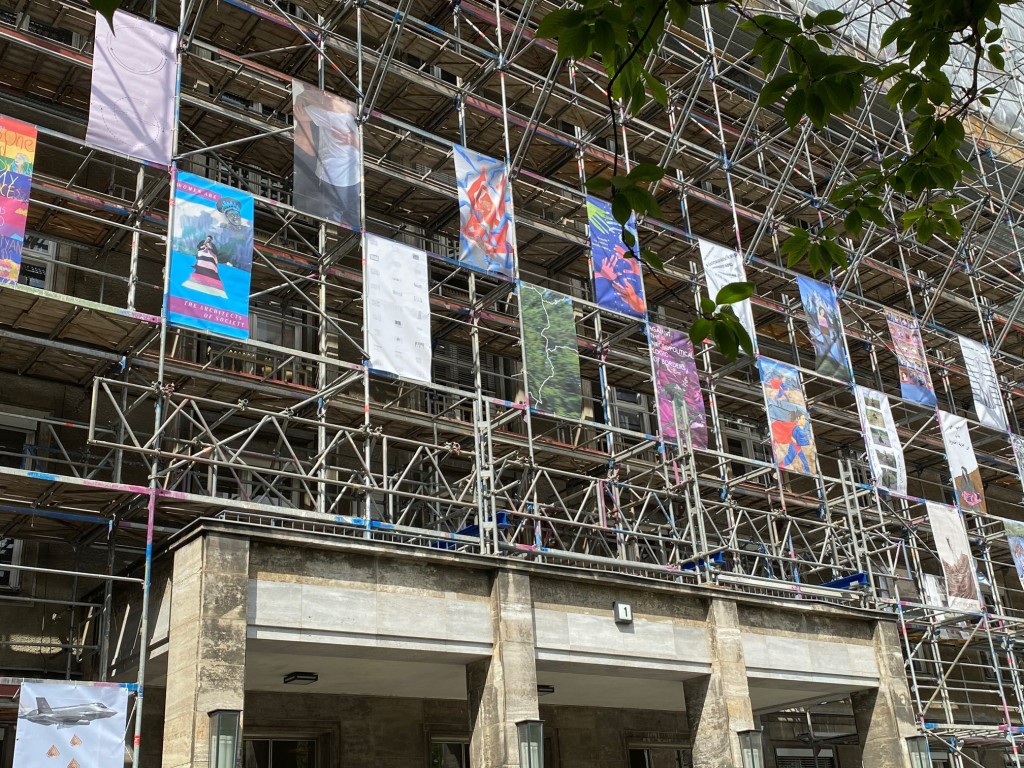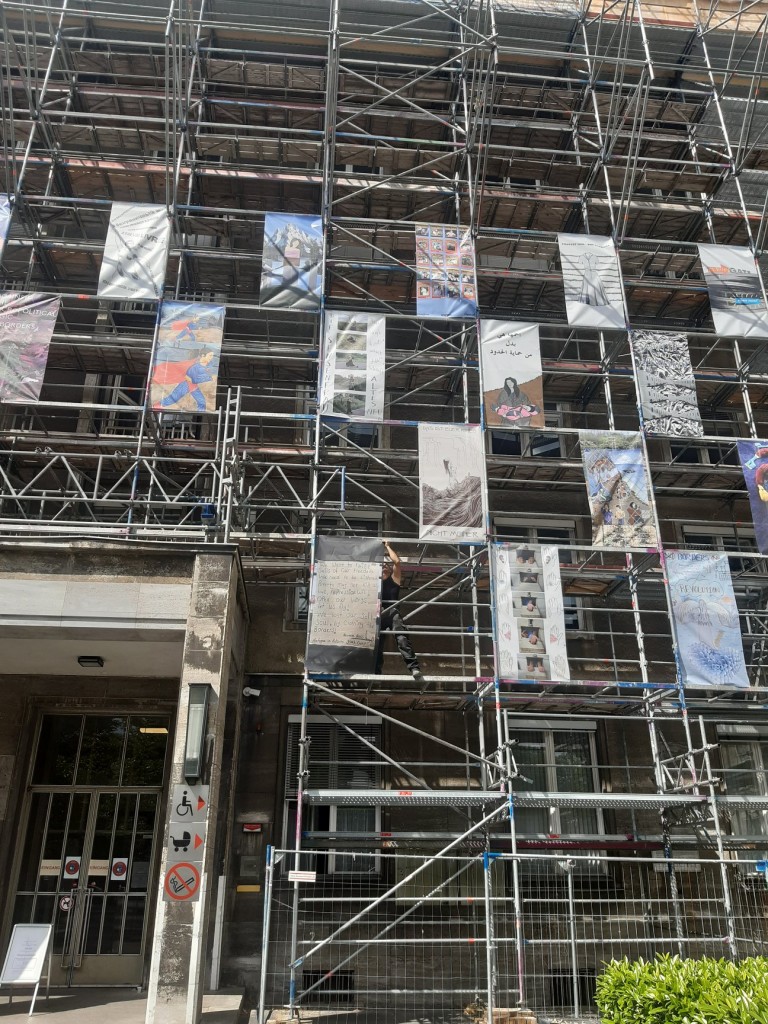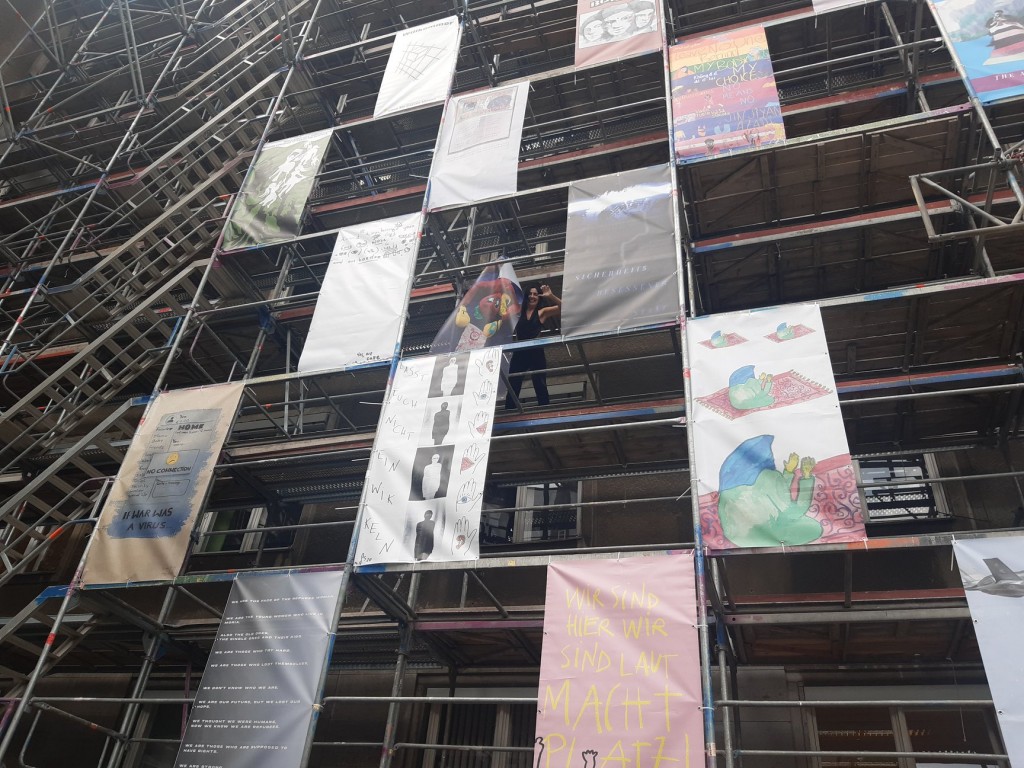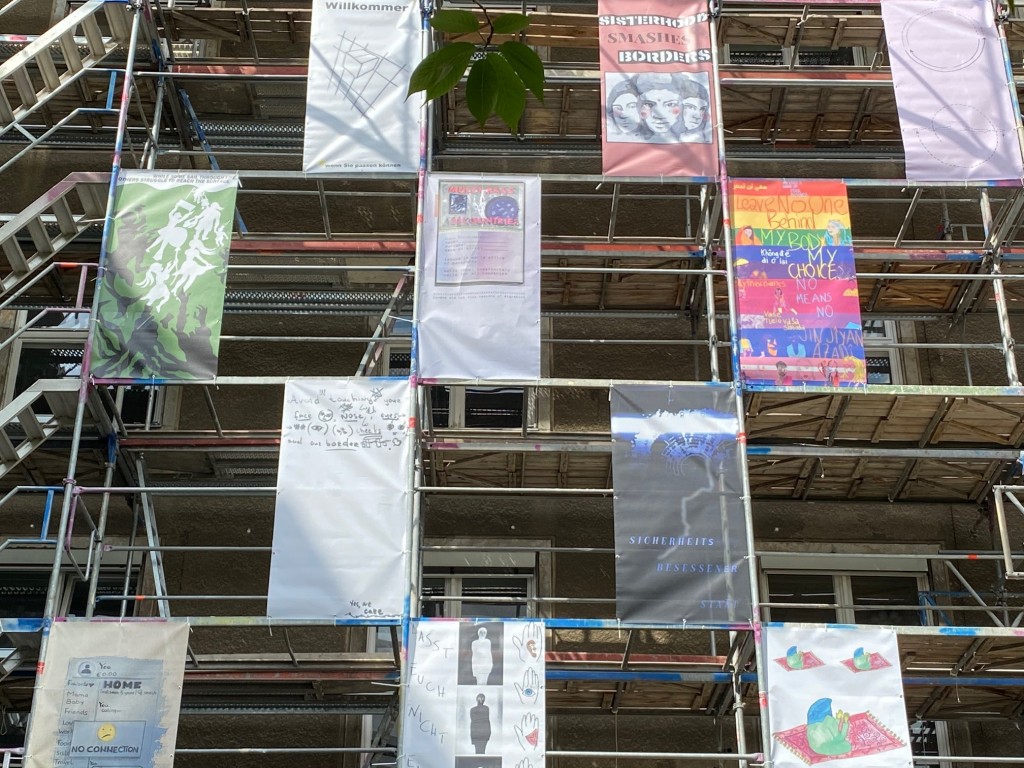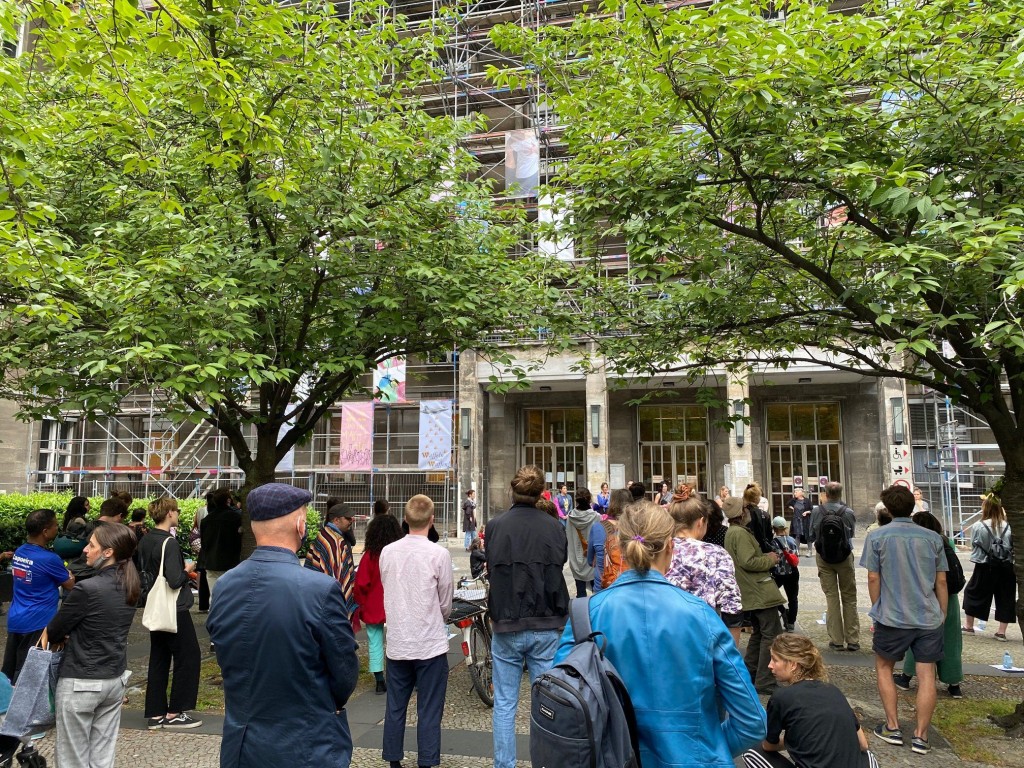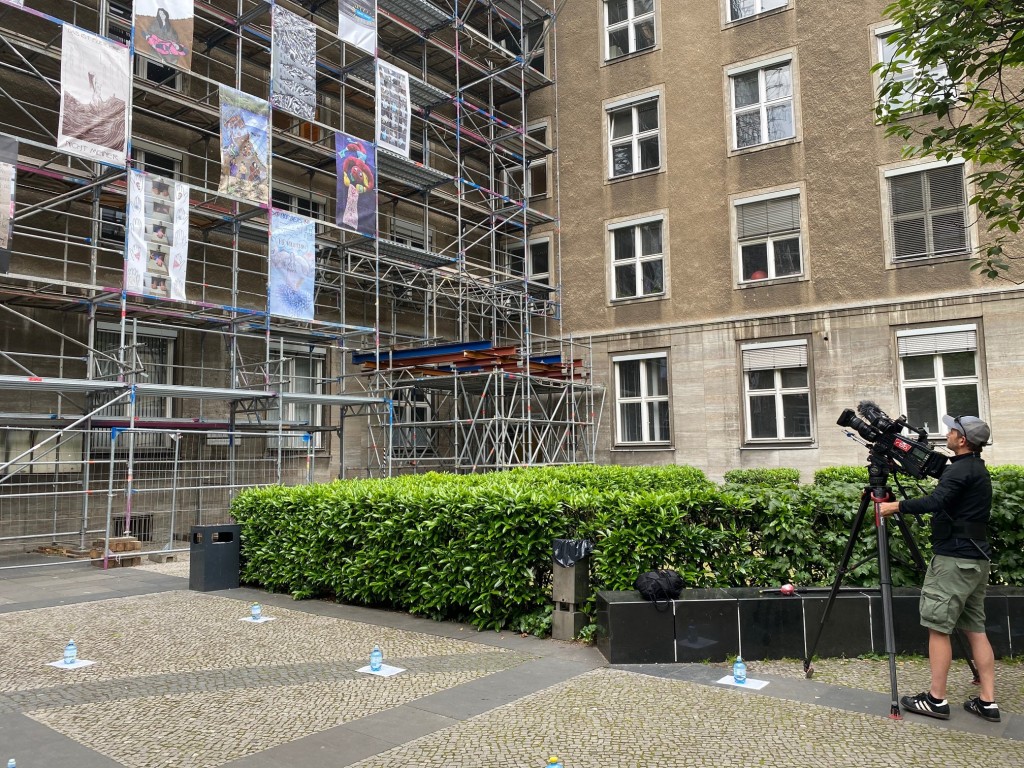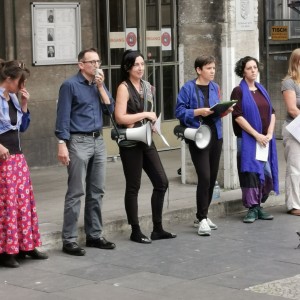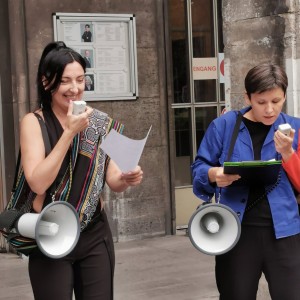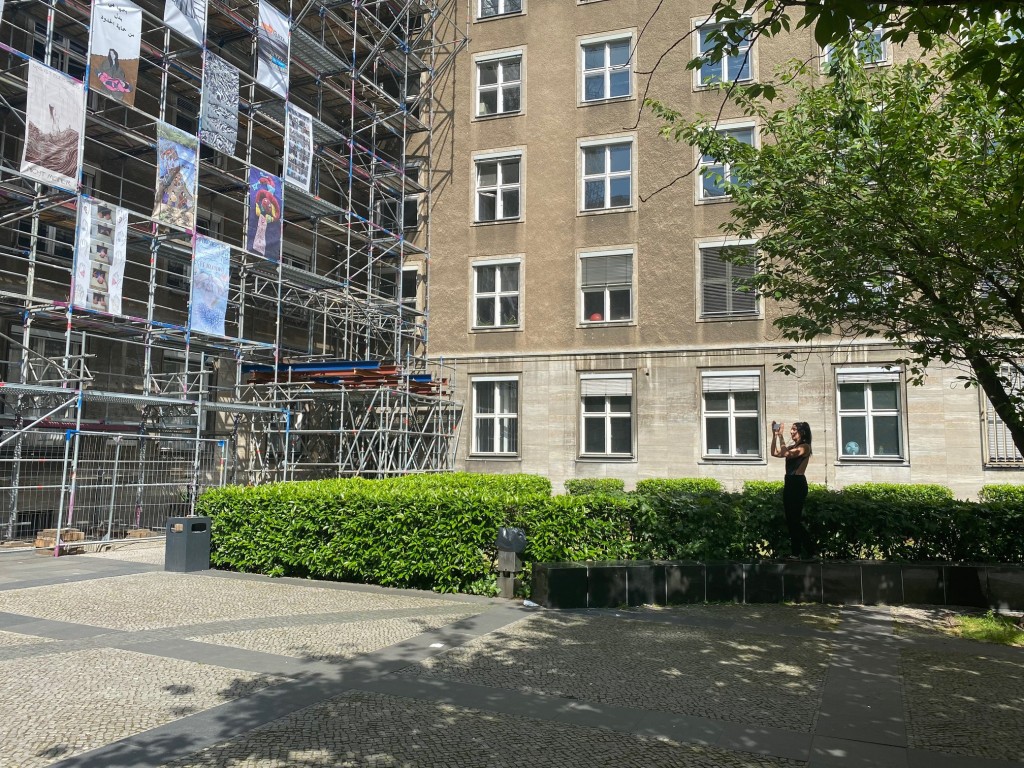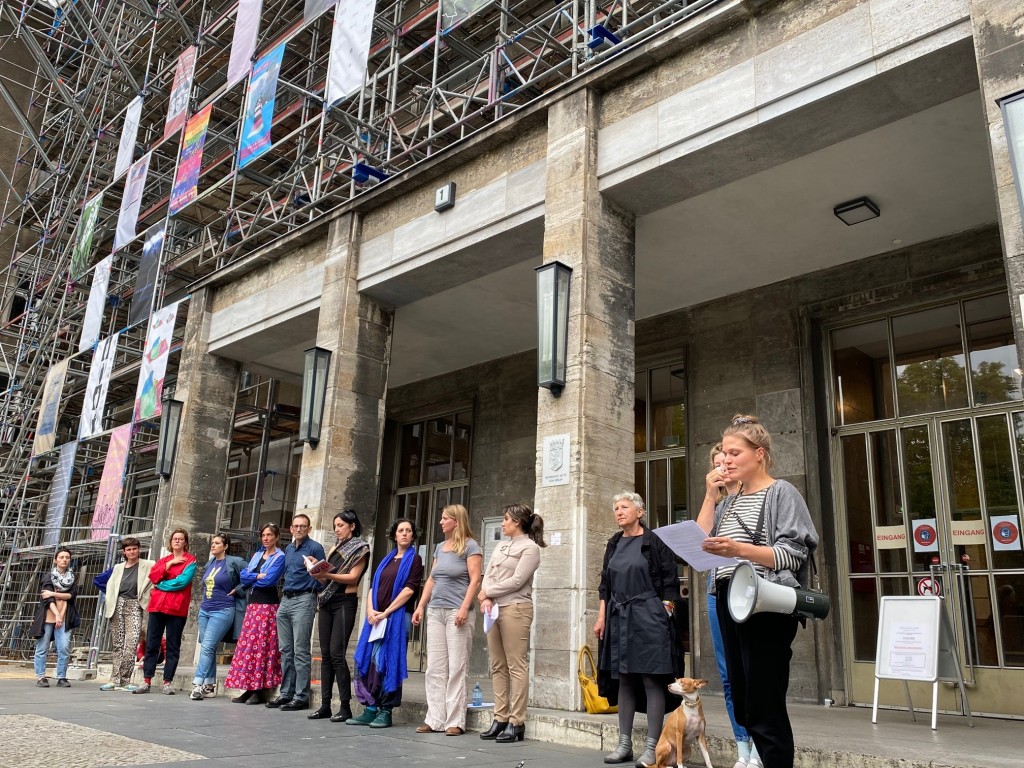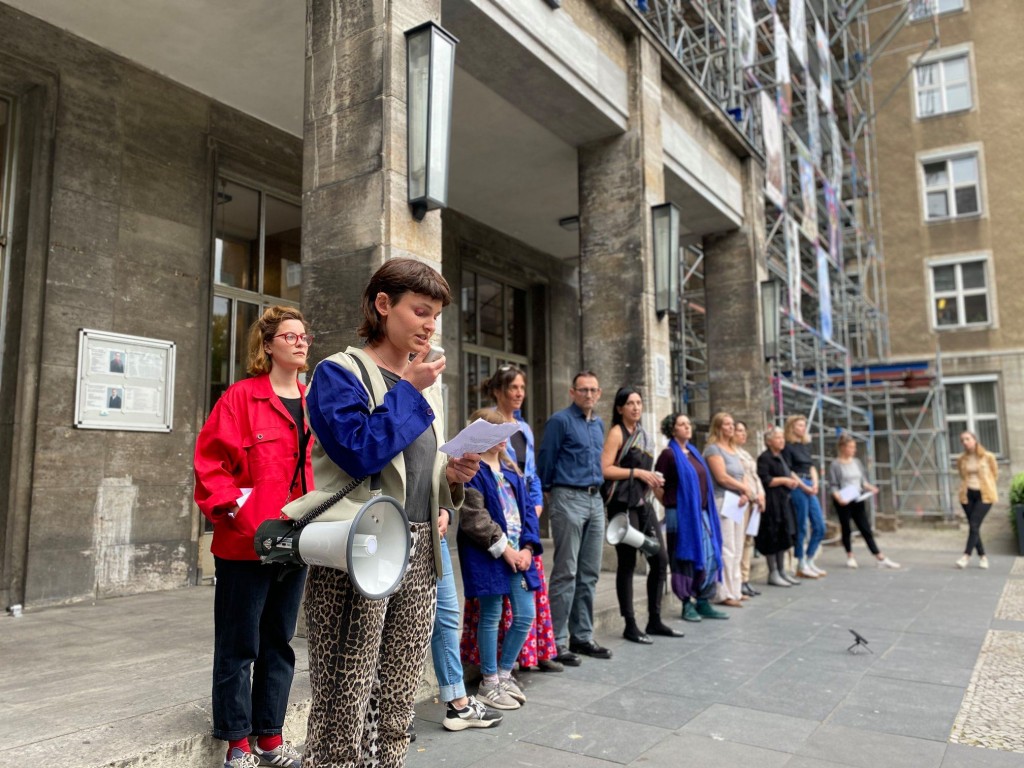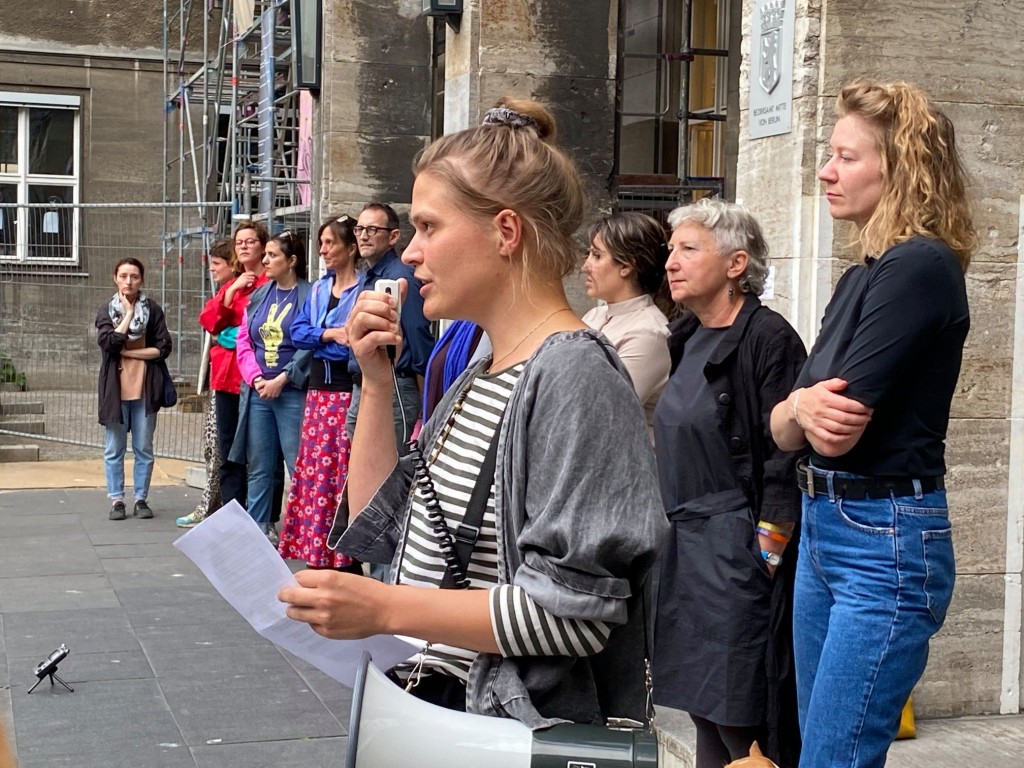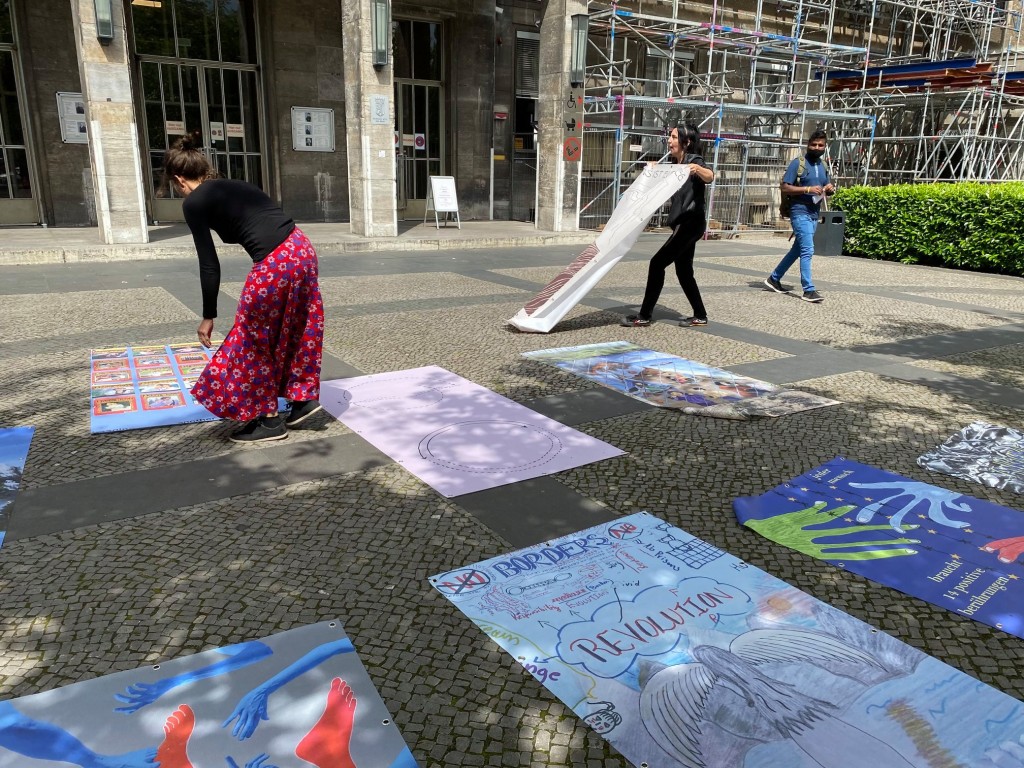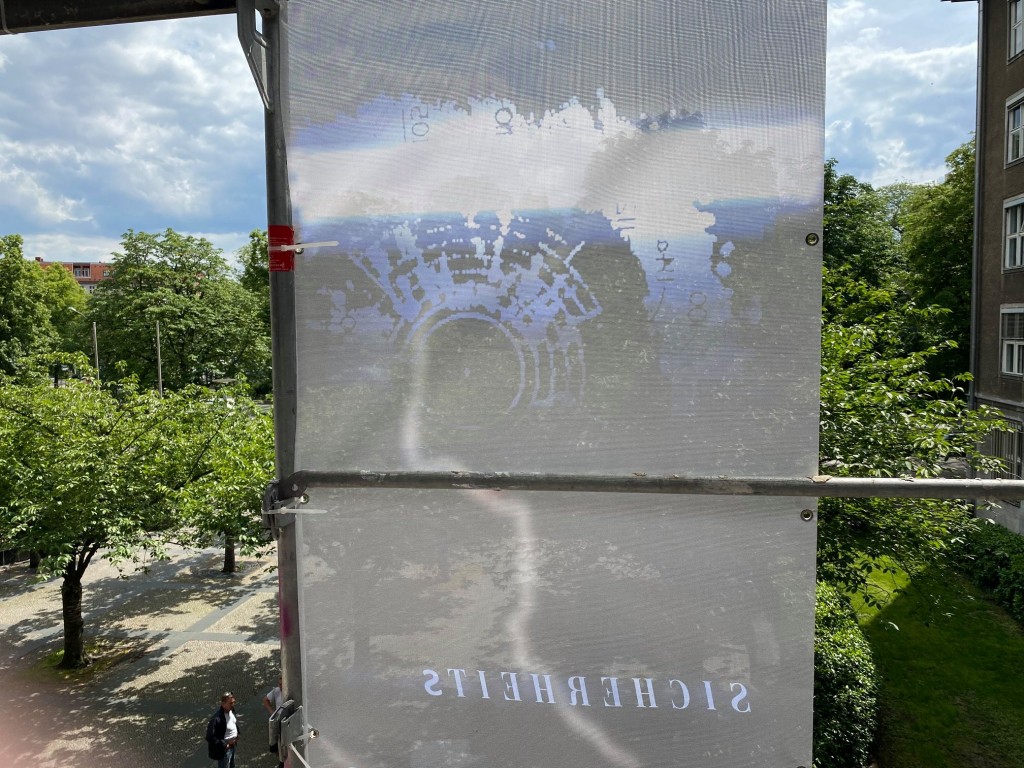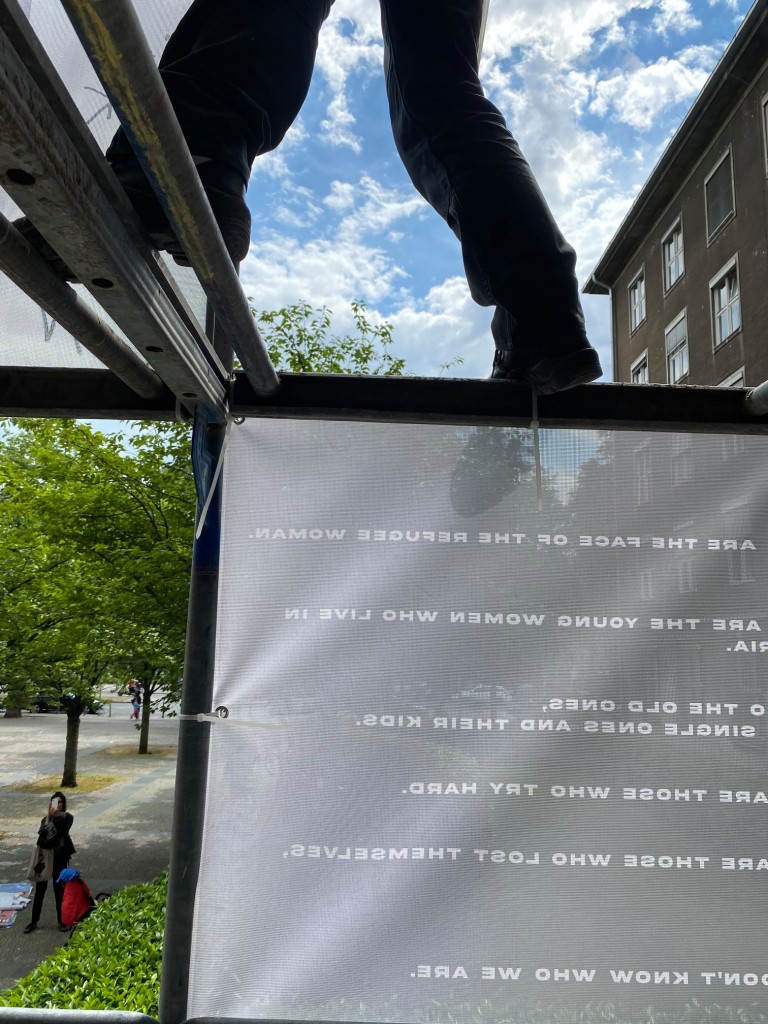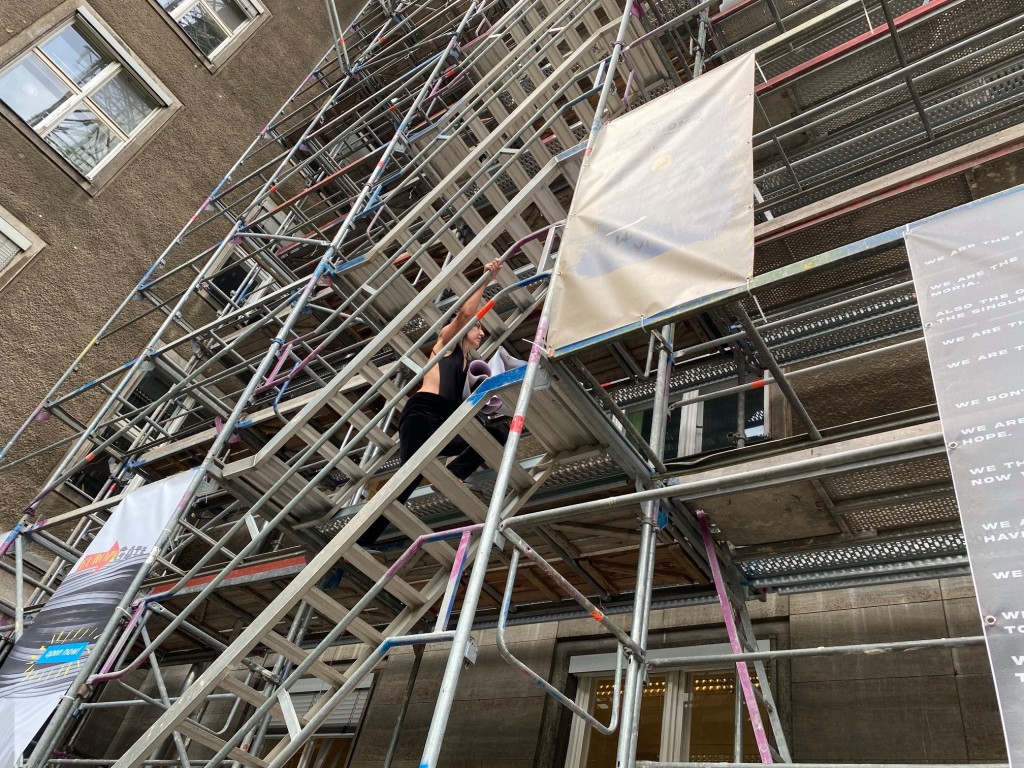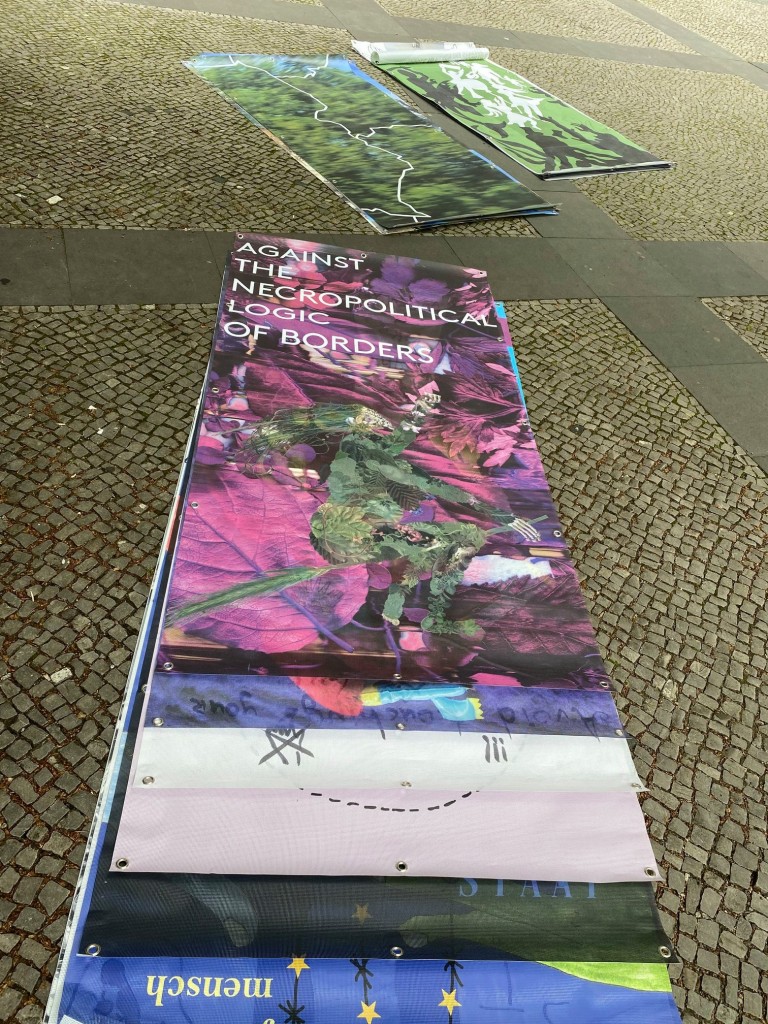Home » Uncategorized
Category Archives: Uncategorized
online marathon: the economy of borders ^^ we lost our soft soul, by crossing the borders
Today we post a letter and two paintings from Raha Amiri:
Greeting and regards
With respect to all
I am Raha Amiri 24 years old from Afghanistan i have a girl she is 8 years old we are in Greece, Moria.
I would like to talk about my experiences. My work is about beauty and art with women. I am really exited sharing my paintings and my feelings to “The economy of borders” with all of you. “Burnt Nest” is one of my paintings about all human around the world who lost their home and their family. So I wanted to share my feelings sympathy with these people. My second painting is “Batwoman”, about all women who have forgotten their power and considered themselves weak. I shared my feelings about refugees with paintings beacuse each of them has embraced their sad possessions stories. How beautiful it is to be in solidarity, understand each other, so we all end up in this house whose name is the world so we dont forget to give love and affection to each other. Let’s build a beautiful world for a big familly because we are a family in the world.
Thanks to the friends who efforts hard for this beautiful program wish for victory and peaceful
My contact instagram:raha.tattoo1995
Facebook:raha amiri
online marathon: the economy of borders ^^ we lost our soft soul, by crossing the borders
July 9th
This project is a pen illustration which tries to address the position of women in situations of war and destruction. Structured in reference to many symbolisms extracted from classical painting, the work unveils a female figure rising in a manner similar to that of a monument, from rough waters while a deconstructed, destroyed city lies behind her. Rough waters are usually used in art hist…ory as a means to manifest pain, disease, war or destruction. The use of an iconography similar to that of the Art Nouveau movement, in which women are portrayed as ethereal and seductive, as a decorative erotic object in the painting that is, is not aimless. As the title of the work implies, the purpose of this illustration was to underline the minimum say women have in political choices, while being the ones that are inflicted the most pain. Wars, being the continuation of patriarchal power remnants, always place the most vulnerable in situations that do not involve them. We, as women, in particular are constantly found in between battles organised and manifested by men for men. This is a shout out for everyone who has been hurt, used, abused, manipulated, blamed while being under circumstances they did not choose. When the inhumanity doesn’t hurt us, it makes us stronger!
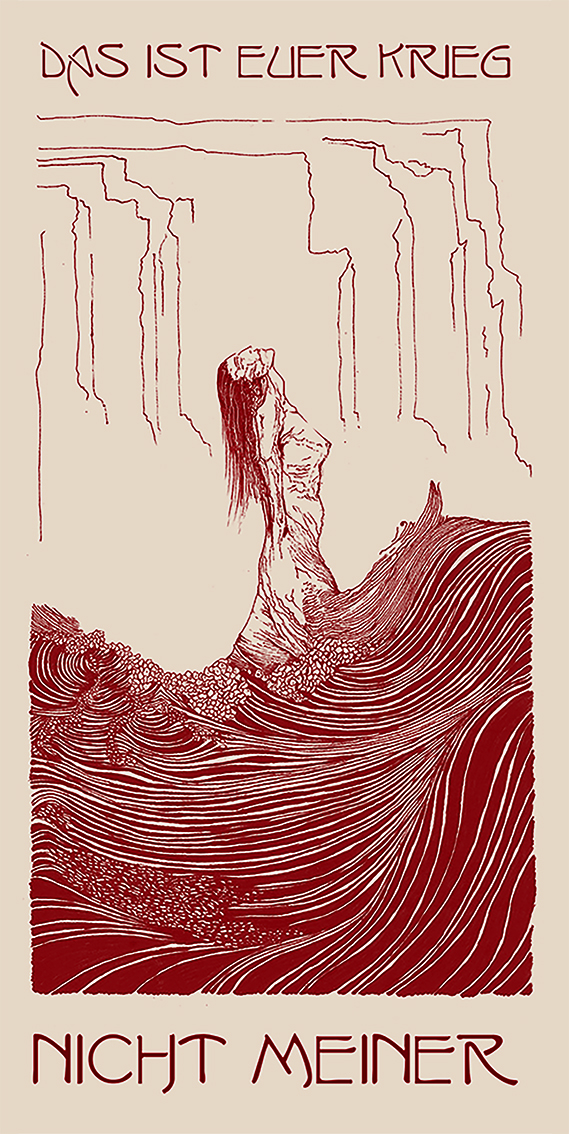
July 8th
Liwaa Yazji
My contribution to The Economy of Borders… Thank you all for the chance to be part of this group and event.
This is a trailer to my film “Haunted”, it talks about Syrian in one of the critical moments as I believe during these harsh times. whether to leave Home or not… if you ever had the luxury even to question. Syrians like everyone else like their homes (some spent over 20 years to obtain one!) so, it is not easy for them to be so uprooted… it was crucial to film Syrians while still in Syria… to give a correct idea how they are not Naturally Born Refugees as media makes of… them.
To have a future is a right
If countries sell weapons to Syria, it is strange that the same countries refuse to take in refugees… the natural outcome of wars they had their fingers in.
People will continue to move due to so many reason… climate, wars, pandemics… as long as the wealth distribution is so imbalanced and abusive.
July 7th
Antigoni Theodorou
https://www.youtube.com/channel/UCmvv3fOmFGEKhjFtPO3I-PA
http://lesvos.w2eu.net/…/pixi-the-olive-tree-and-the-old-w…/
July 5th
Vera Varlamova
How to play?
July 4rth
Antigoni Tsagkaropoulou
This is Tinhairbell, a non-binary, trans Hairy Fairy.
For me it was important to create a transfeminist, intersectional message, spreading radical softness, tenderness and vulnerability as a political tool of resistance against all borders and oppressive regimes.
This is a small poetic fairytale about her.…
✨✨✨
The Hairy Fairy was born out of the last tears of a woman who was burnt at the stake after she had been accused of witchcraft. That day Ursula let her bittersweet tears fall, she let them flow on her whole body and fall on the ground. Her body, a source of identity and prison, turned into ashes, which seeped through the ground and took root in the silent history of the world. Tinhairbell rose from the mud and the trails of death. One component of her essence is the constant fear of persecution. She flies with her one shiny wing in perpetuity across time and opposes all the mechanisms of control and exploitation of her body using her supersized arms. Her fairy dust consists of the voices of women covered by silence, the therapists, the insubordinates, the gossips, those who poisoned their masters and lived by themselves in the margins. If you look down below the sky and close your eyes, you might see her sprinkling glitter with her colourful boxing gloves.
✨✨✨
Η Τριχωτή Νεράιδα γεννήθηκε από το τελευταίο κλάμα μιας γυναίκας που βρισκόταν πάνω στους πασσάλους της πυράς επειδή την κατηγόρησαν για μαγεία. Εκείνη τη μέρα η Ούρσουλα ελευθέρωσε τα γλυκόπικρα δάκρυά της, τα άφησε να διασχίσουν το κορμί της και να πέσουν στο χώμα. Το σώμα της, πηγή ταυτότητας και φυλακής, μεταμορφώθηκε σε στάχτη η οποία εισχώρησε στο έδαφος και ρίζωσε στη σιωπηλή ιστορία του κόσμου. Η Τρίχερμπελ βγήκε μέσα από τη λάσπη και τα ίχνη του θανάτου. Ένα από τα συστατικά της υπόστασής της είναι ο διαρκής φόβος καταδίωξης. Πετάει με το ένα της αστρα-φτερό στο διηνεκές διασχίζοντας το χρόνο και εναντιώνεται με τα υπερμεγέθη της μπράτσα σε όλους τους μηχανισμούς ελέγχου και εκμετάλλευσης του κορμιού της. Η νεραιδόσκονή της αποτελείται από τις φωνές των γυναικών που τις κάλυψε η σιωπή, τις θεραπεύτριες, τις ανυπάκουες, τις κουτσομπόλες, αυτές που δηλητηρίαζαν τους αφέντες τους και ζούσανε μόνες τους στο περιθώριο. Αν κοιτάξεις χαμηλά κάτω από τον ουρανό και κλείσεις τα μάτια, ίσως τη δεις να σκορπίζει γκλίτερ με τα πολύχρωμα πυγμαχικά της γάντια.
July 2nd
In 1981 she began with performative photography (together with Cornelia Schleime), in 1982 she released Super-8 films and wrote articles for underground magazines of Prenzlauer Berg cultural scene. From 1984 on: fashion-object shows, Super-8 films and performances with a group of female artists from Erfurt “Exterra XX“. In 1989 Gabriele Stötzer co-founded “Women for Change“, she was one of the initiators of the first occupation of a State Security building in the GDR on December 4th 1989. 1990 adoption of the maiden name Stötzer. Since 1990 she has published eight books, from 2010 on she worked as a lecturer for performance seminars at the University of Erfurt. In 2011 and 2013 she created features for the TV Chanel mdr about the prison of Hoheneck and about forced adoption in the DDR, she appeared in concerts reciting text with the Ensemble for Intuitive Music Weimar. Since 1996 international exhibitions “boheme and dictatorship in the DDR“, 2009 “re.act.feminism“, 2013 „Schwingungskurve Leben“ (Vibrating Curves Life), solo exhibition at Klassik Foundation Weimar. Gabriele Stötzer curated “Between Withdrawal and Action” („Zwischen Ausstieg und Aktion“) Kunsthalle Erfurt, “Antitheses” („Gegenbilder“) Gropius Bau, Berlin, 2018, “Torn Threads” („Gerissene Fäden“), Brandenburg State Museum of Modern Art Cottbus, 2018, “Medea Rebels” („Medea muckt auf“), Dresden State Art Collections, and The Wende Museum Los Angeles 2018/19, “East German Photography”, Arles, 2019. 2019-2020 “The Stötzer Archive”, Gallery of Contemporary Art Leipzig.
2013 she was awarded the Federal Republic of Germany’s Order of Merit.
For the time after: the social performance: learning from each other
Maybe for the time after an experience from the time before useful…
Through years of organizing a performance seminar at the university of erfurt every six months since 2010 i have developed – almost against my will – a knowledge in my mind. I felt it would be worthwhile to write down what i learned but have always avoided doing so. However, i will do it now. It is concerning the reorientation of communication which is now remotely controlled, remotely wired and remotely connected with all information and all events. Our life is in constant motion, a taking in and a giving (of air, of food, of fluid, of thoughts). I call it a constant process of development or learning. And an essential understanding we humans should learn and live with in order to practice the harmony, the tolerance, the originality, humanism, and laughter, that is composed of our many diversities. I am talking about direct contact, person to person contact, the process of entering the world of the other and perceiving the world of the other, or towards the other, and at the same time, the connection of the other’s connection to oneself. sensual learning processes, processes which can consist in the relearning of and the abandoning of old patterns, leading to new social interaction: the expanded interaction with each other, so to speak, based on respect and equal treatment of the ideas and the actions, and the physicality of a community with one another. In the performance presented here, I describe a possibility for this extended interaction with one another, a process of physical self-indulgence, spiritual delivery, the opening towards oneself and others under the constant prerequisite of no-failure and self-satisfaction. The performance is based on minimalistic equipment – only the equipment of one’s own body – that carries out one’s own ideas and not those of others in the empty space, a space that is a visionary space for the visionary action. The period of my performance from getting to know each other until presentation is a single week, the level of participation has been 6-20 students so far. The end product is a collaborative performance, I call it social performance.
July 1rst
WIR SIND HIER, WIR SIND LAUT : MACHT PLATZ!
WE ARE HERE, WE ARE LOUD: MAKE SPACE/GET OUT OFF OUR WAY!
We – women*, migrants*, minorities – are part of this society and take place in building it.
Now we deserve our space, our recognition. We will not let this space be taken away from us. We are not quiet. And we are many.
…
June 30th
by Florine Schüschke:
multipass. valid
for all countries. and borders
become obsolete
…
multipass. one for
every person in the world.
same for everyone.
seems like a dream but
we have to believe in it
becoming true. a fight.
because passports are
the biggest inequity
one can imagine.
because passports are
the biggest absurdity
one can imagine.
June 29th
By Olia Sosnovskaya:
I am writing this in Vienna, Austria. Due to the total neglection of the coronavirus pandemic by the Belarusian president A. Lukashenko, who refused to imply quarantine and orders to lower the official statistics (if you follow it – just don’t trust it) and the number of tests, the situation there is really frightening. People and businesses crowd-fund for medical supplies. Every time I hear and read about someone of my friends’ relatives, colleagues and friends being sick or dead. At this moment, Belarus is rated with the highest coronavirus risk by the Austrian government. It is unknown when we would be able to move between the Schengen borders more or less ‘freely’ again, even if having visas.
And then, more news is coming when the president election campaign started: endless lines of people who are queuing in the epidemic to give their signature for the alternative future candidates; then those candidates to the candidates (even prior their registration) being detained; the current president daily humiliating and assaulting the people in the media; bloggers and hundreds of people protesting the detainment getting arrested.
And the most recent news was that almost half of Minsk districts’ water was polluted — not safe to drink, to cook, to wash. The authorities denied the danger for the whole day! The problem is still not solved fully, and there is still no reliable information about what happened.
You may think the borders are far, and that they protect you. Very soon the first Belarusian nuclear power plant will get launched, regardless the numerous safety warnings, lack of proper examinations and existing failures. The recent water crisis in Minsk reminds us, that in case of emergency we will not get neither information, nor help. The radiation does not care about the borders.
PS. Below is the donation campaign for everyone who has been those been recently arrested, fined or persecuted by the state in Belarus.
https://www.facebook.com/donate/1123543824684874/269990080768227/
June 27th
A Trip to Dagestan, by Victoria Lomasko:
By Nagrane Narva:
https://hopeisnohome.tumblr.com/
June 26th
by Nicola Schüschke:
At the moment I am trying to understand the phenomenon of „Heimatroman“, a sub-genre of the German “Groschenroman”(dime-novel). Even if this kind of pulp literature seems absurdly outdated, it is being read widely throughout this country. People read them in order to get distracted, as the end is always a happy one, there’s nothing much you can miss. They are perfect to make yourself think that there are no problems in this world other than choosing between the rich and the beautiful. The stories follow strict rules: no politics, no sex, no surprise! They are full of reactionary images, submissive sexism and romanticized nationalism. Especially the cover images show what it’s all about: on most of the novels there’s a young couple or a girl smiling in the middle of nature. Even the colour-schemes often include the colours of the German flag. Absurdly, the Heimatroman is being published in higher numbers that any other books in Germany. I asked myself what kind of story the main author of German fiction, Angela Merkel, would write about. I figured out, it must be about „Grenzenlose Liebe“ – endless love, love without borders.
Still – even if Horst Seehofer doesn’t seem to come up with another volume of prose but just repeats his same old verses – I don’t lose hope that there are at least some others out here who have other ideas about “Heimat” than a flirt with the hunter on a castle in Bavaria!
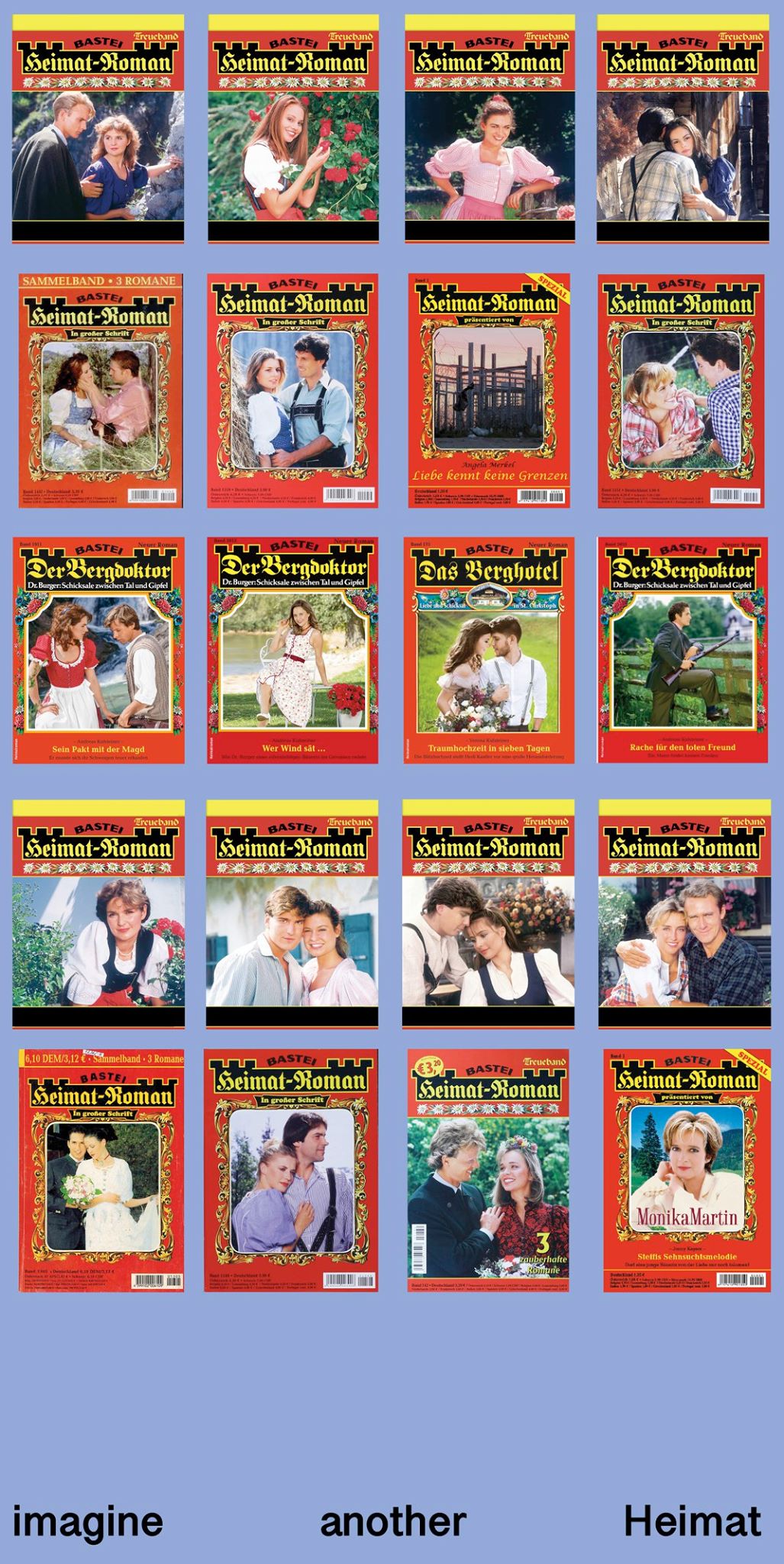
June 25th
Today we continue with our marathon with Batoul Baty Sedawi:
Women are the most vulnerable to injustice in the war-torn countries, but in my country, the injustice will be doubly unfair as they are subjected to the worst kinds of torture and rape in the prisons, and after their release, they are ostracized by their families and society where they are considered to have brought shame to them.
النساء هم الاكثر تعرضا للظلم في البلاد التي تعاني من الحرب، لكن في بلادي سوف يكون الظلم مضاعفا حيث انها تتعرض لابشع انواع العذاب والاغتصاب في المعتقلات، وبعد خروجها تتعرض لنبذ من قبل اهلها ومجمتع حيث تعتبر قد جلبت عار لهم .
video:
by Baty Sedawi
June 22nd
Today we continue with Lada Nakonechna‘s work:
This project took place on the different streets of Zurich. People were proposed to create the secure place by delineation their own territory using yellow chalk (this color signs public space places which are privatised). At the end the chalk circle makes people immovable inside.
June 20th
This day is dedicated to The House of Women for Empowerment & Emancipation, Athens.
https://www.facebook.com/Το-Σπίτι-των-Γυναικών-για-την-Ενδυνάμωση-τη-Χειραφέτηση-1452231711753592.
Here comes the message from Shayan, one of the former detainees of the Petrou Ralli prison, please, take the time to hear the witness of Europe today:
link to Shayan’s message
A small fragment from the zine by Shayan, she and others from the community of The House of Women for Empowerment & Emancipation publish and distribute it for those who are still in prison:
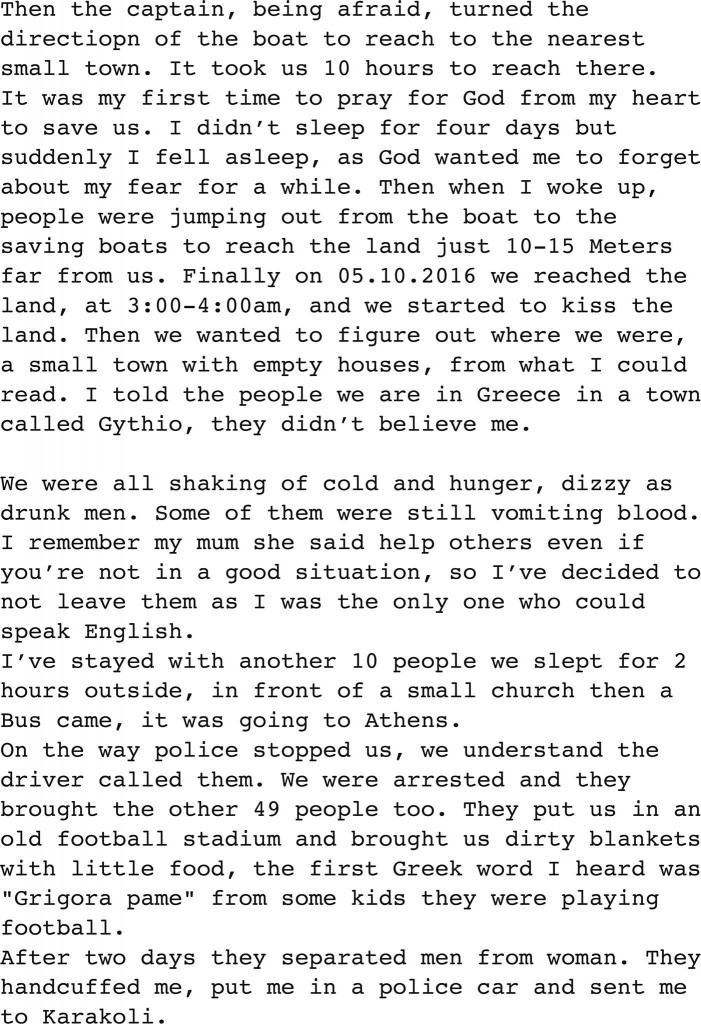
Letter of Denunciation: human rights activists and everyone else, please, don’t let this document pass your attention.
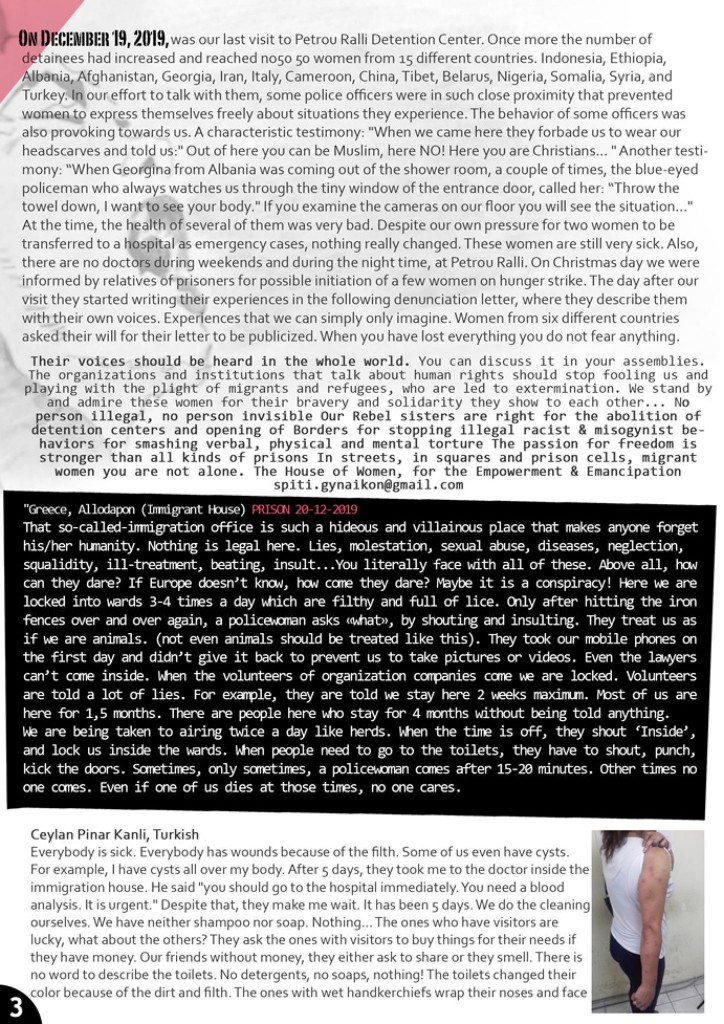
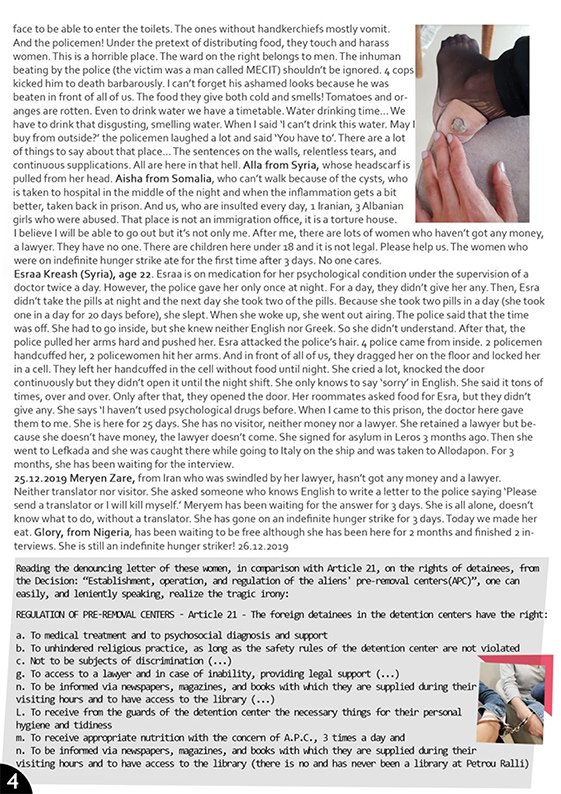
Our initiative ‘The House of Women for Empowerment & Emancipation’ is part of the anti-authoritarian solidarity grassroots movement. We are a self-organized feminist collective opposed to all states and borders, political parties, public or private institutions and NGOs. We are committed to the struggle for women’s emancipation and the end of gender based and racial violence, homophobia, transphobia, sexism and the trafficking of women and children that is reproduced by the machinery of patriarchy globally. For almost 4 years, we have been meeting with detained women, starting our visits at Εlliniko and then at Petrou Ralli. We listen to detainees’ stories and demands and document the problems they face, attempting to answer their questions and give voice to their denunciations. At the same time, we try to foster and sustain a broader local and international social network of solidarity with other individuals and collectives through organizing events around imprisonment and other gender issues. We work to build and strengthen our relationships and empower one other, even after women are released from the detention center. Together we struggle for our liberation.
FOR THE BREAKDOWN OF BORDERS, THE ABOLITION OF DETENTION CENTERS, PRISONS & CONCENTRATION CAMPS,
AGAINST THE PANDEMIC OF PATRIARCHY,
SOLIDARITY AND SELF ORGANIZATION ARE OUR WEAPONS
Email: spiti.gynaikon@gmail.com
Fb: Το Σπίτι των Γυναικών, για την Ενδυνάμωση & τη Χειραφέτηση
Some photos from the process: The House of Women for Empowerment & Emancipation is making their poster for The Economy of Borders action…
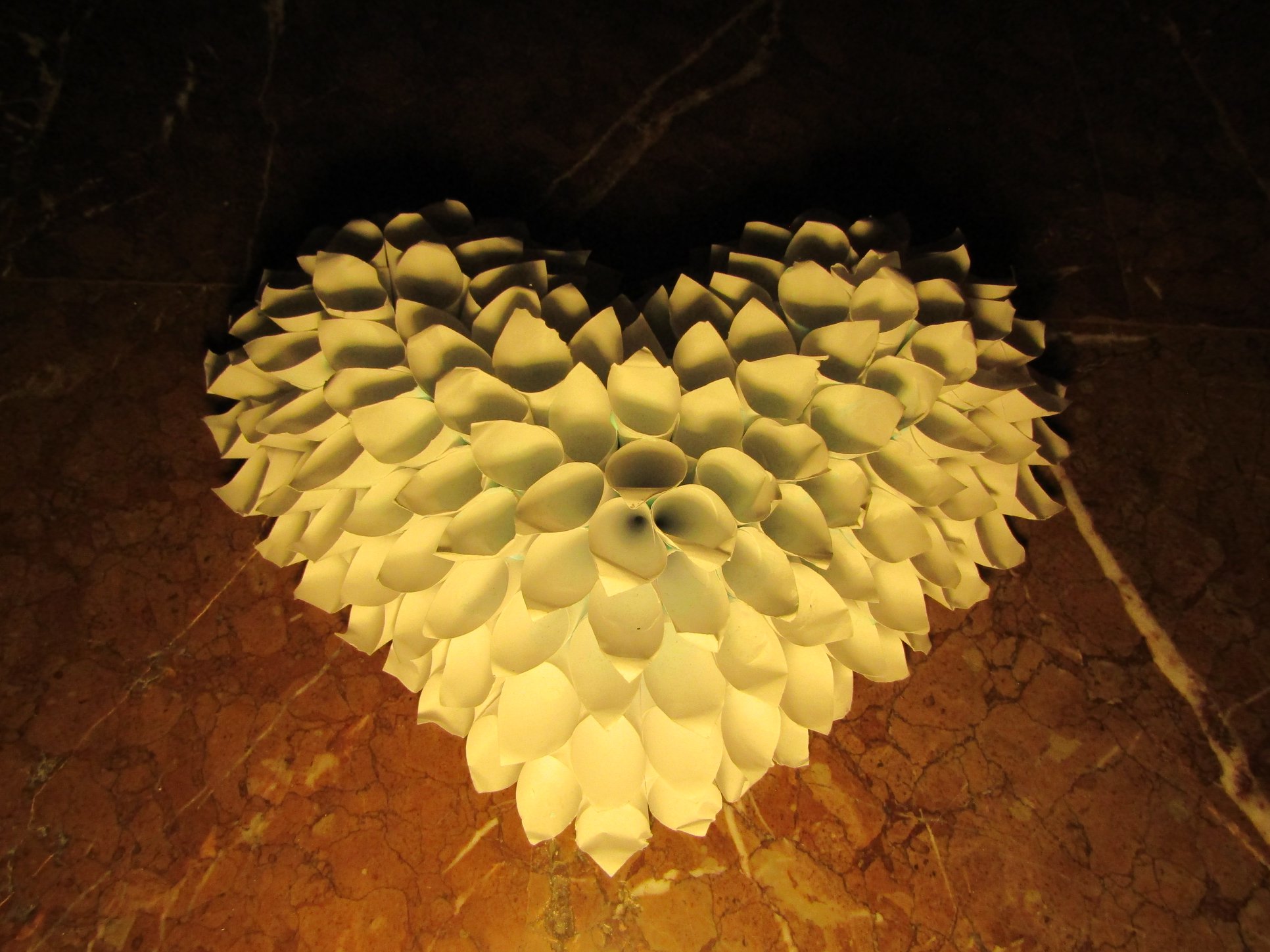
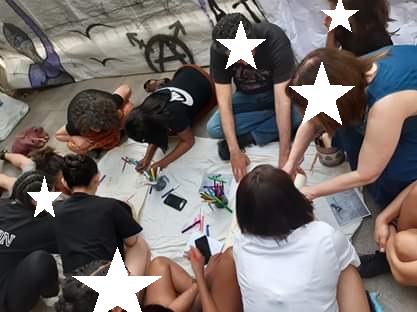
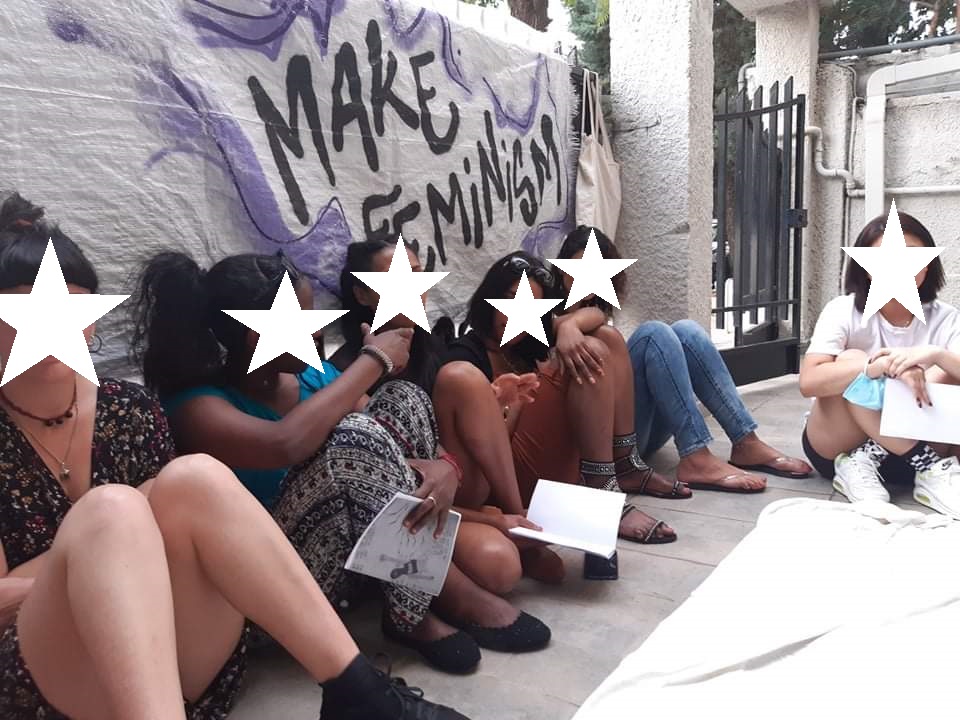
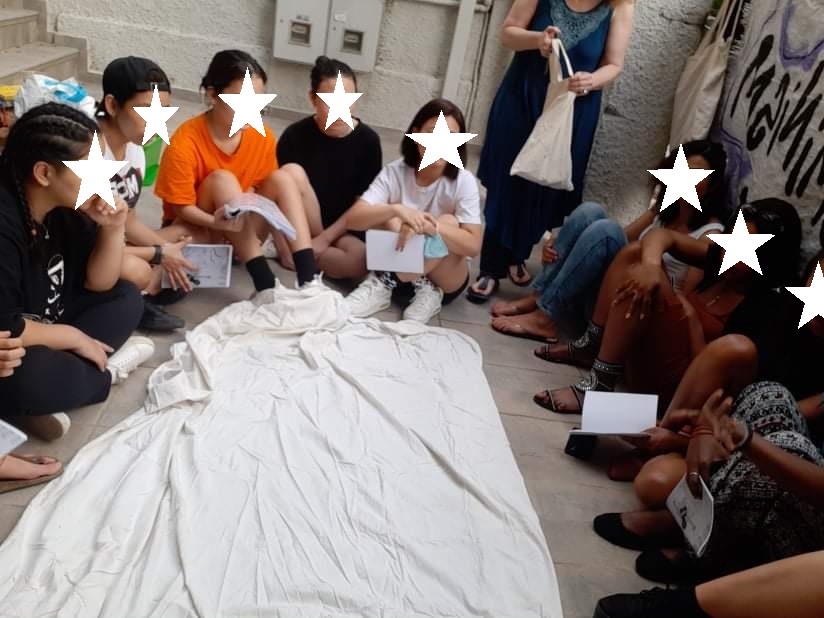
June 19th
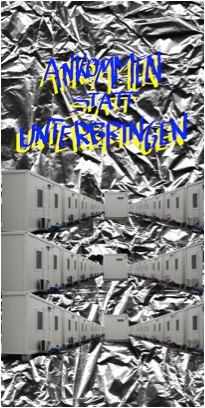
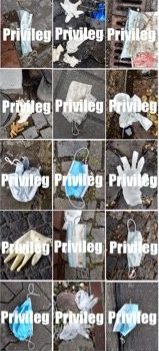
By Sarah Kwasnicki:
Arrival without landing My daily arrivals: home, Schlesische 27, Neue Nachbarschaft// Moabit, friends, garden – where I feel safe, full, grounded, where I feel strong and loved. I arrive because I see my future and I want to stay. People who flee blocked from arrival. Violence at the borders, people held against their will, under inhumane conditions. Once the European border is crossed, the decisions come from above – if you’ll stay, if you’ll be deported, where you’ll to live, what you are permitted to do, what will be denied of you. A container, a fence, no voice, no choice, – on repeat – that’s not arrival. The right to live, the right to vote, the right to work, the right to move, the right to home, the right to friendly neighbors, the right to be together, the right to a garden, the right to learn, the right to be seen, the right to be heard, the right to love, the right to peace, the right to happiness, the right to a bathtub, the right to arrival We are living in privilege that we don’t want to see.
Heute mit Sarah Kwas
Ankommen statt Unterbringen – Tagtäglich komme ich an – zu Hause, in der Schlesischen 27, in der Neuen Nachbarschaft// Moabit, bei Freunden, im Garten, … – kurzum, an Plätzen, wo ich mich wohl und sicher fühle, wo ich geerdet bin, Kraft tanken kann, das Miteinander genieße. Ich bin angekommen, weil ich weiß, dass ich eine Perspektive habe und bleiben will. Tagtäglich wird Menschen auf der Flucht ein Ankommen verwehrt. Sie werden gewaltvoll an Grenzen aufgehalten und es bleibt nichts anderes übrig, als unter unmenschlichen Bedingungen zu verharren. Und wurde die Europäische Außengrenze überquert, wird von oben herab entschieden, – ob du bleiben darfst, ob du abgeschoben wirst, wo du leben musst, was du zu tun hast, was dir verwehrt bleibt. Und wieder, ein Container, ein Zaun, keine Entscheidungsgewalt, keine Stimme, keine Perspektive – das ist kein Ankommen. Ein Recht auf Wohnen, ein Recht auf Wählen, ein Recht auf Arbeit, ein Recht auf Umziehen, ein Recht auf zu Hause, ein Recht auf nette Nachbarn, ein Recht auf Miteinander, ein Recht auf Garten, ein Recht auf Lernen, ein Recht auf Anerkennung, ein Recht auf Liebe, ein Recht auf Frieden, ein Recht auf gute Laune, ein Recht auf Badewanne, ein Recht auf Ankommen. Und wir leben unsere Privilegien, erkennen sie nicht und treten sie mit Füßen.
June 17th
Clara Stella Hüneke
We continue our Marathon with Nadira Husain! Nadira is installing this week her exhibition with two other artists Amina Ahmed and Varunika Saraf at Heidelberger Kunstverein which will open on Friday. And she sends us these images:
Marina Naprushkina
June 15th
WISH is a non-mixed group of 10-15 women refugees and activists on the island of Lesbos, Greece. We were born in different places, we have different ages, experiences, dreams and fears. But we share the idea that solidarity is our best weapon.
Most of us live in the refugee camp of Moria, others in the camp of Kara Tepe or in Mytilini. We have been working on the island for two years. We create spaces of resistance in this world full of walls and borders, full of prisons, racism, sexism and injustice. Resistance means mutual support, care of the others and respect.
Since the beginning of this year the increase of violence -xenophobia, racism, COVID-19, and systemic neglect of those seeking asylum – threatens the lives of people on the move and those in solidarity. This worsen the already harsh situation in the island’s refugee camps, where there are currently more than 20,000 people without access to any basic right. In this context, it has become more evident than ever that our main strength is our links, which allows us to adapt and continue.
Poster by WISH
“We are the face of the refugee woman.
We are the young women who live in Moria.
Also the old ones, the single ones and their kids.
We are those who try hard.
We are those who lost themselves, we don’t know who are we.
We are our future, but we lost our hope.
We thought me were humans, now we know we are refugees.
We are those supposed to have rights.
We are strong.
We are together, we hold each other to change our moods.
We are the ones who walk together.
The ones who stand together.”
Facebook page: @wishlesb
Email: wishlesbos@gmail.com
June 14th
Vanessa Gravenor: Sicherheitsbesessener Staat June 13th
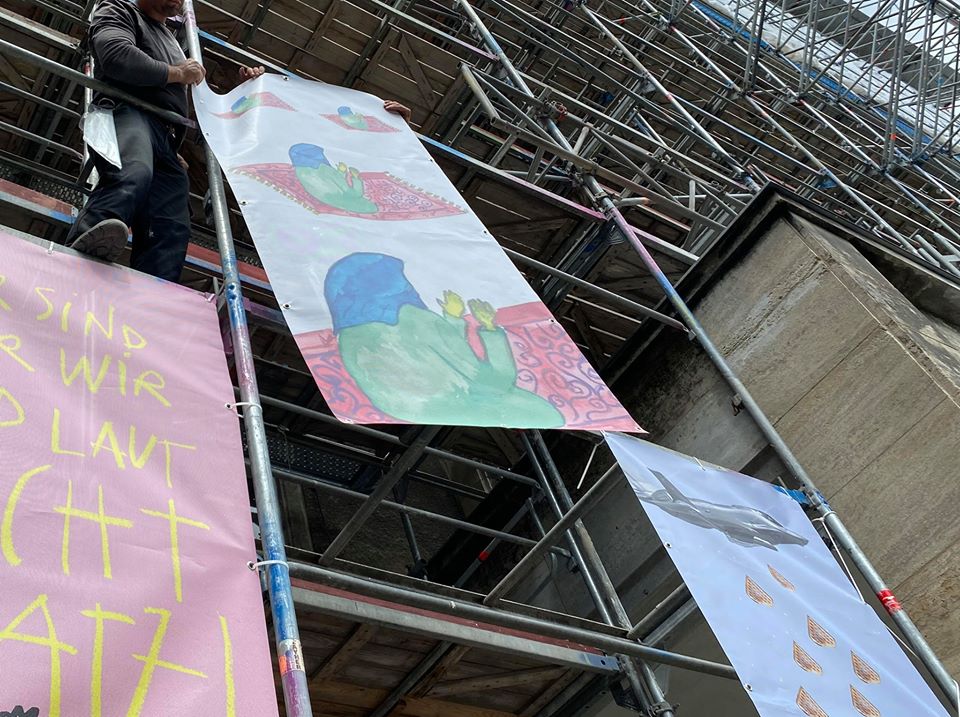
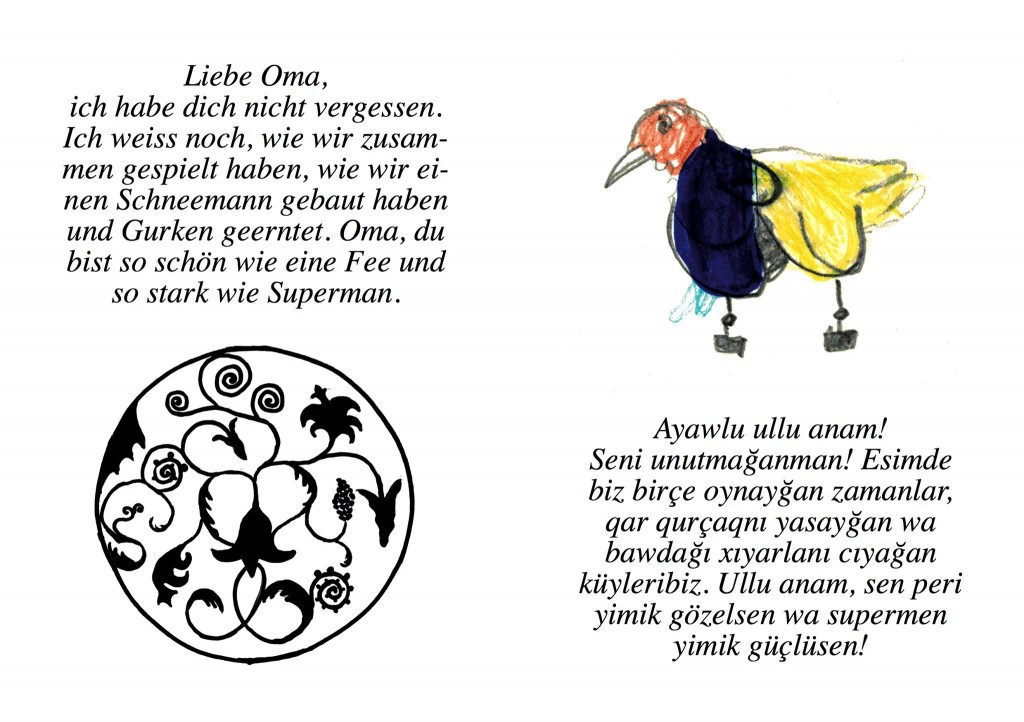
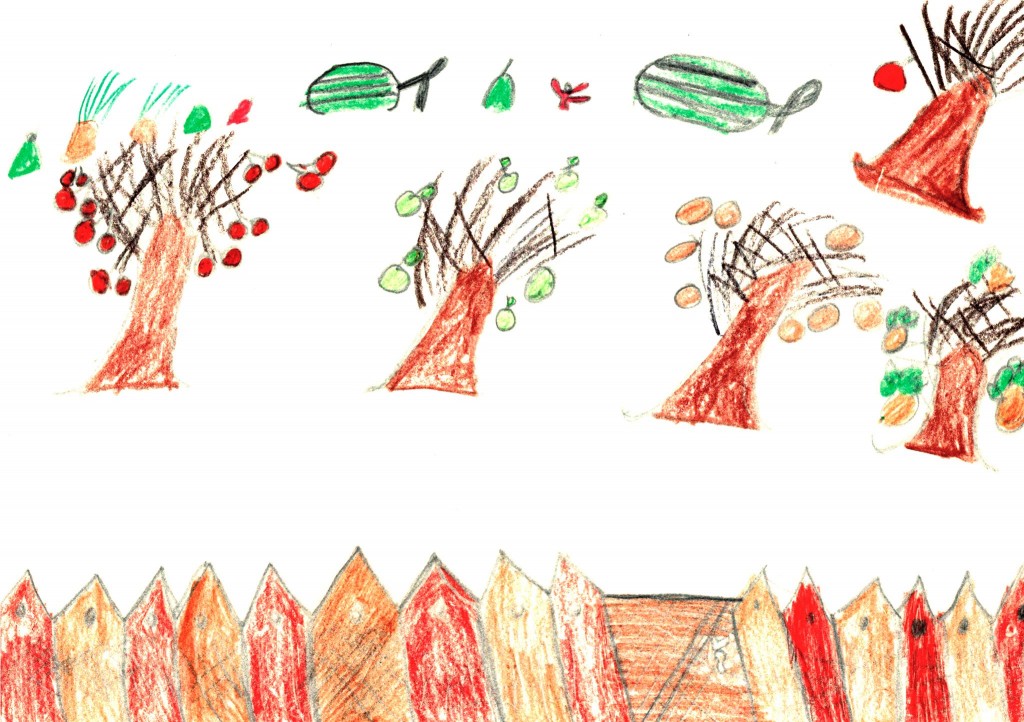
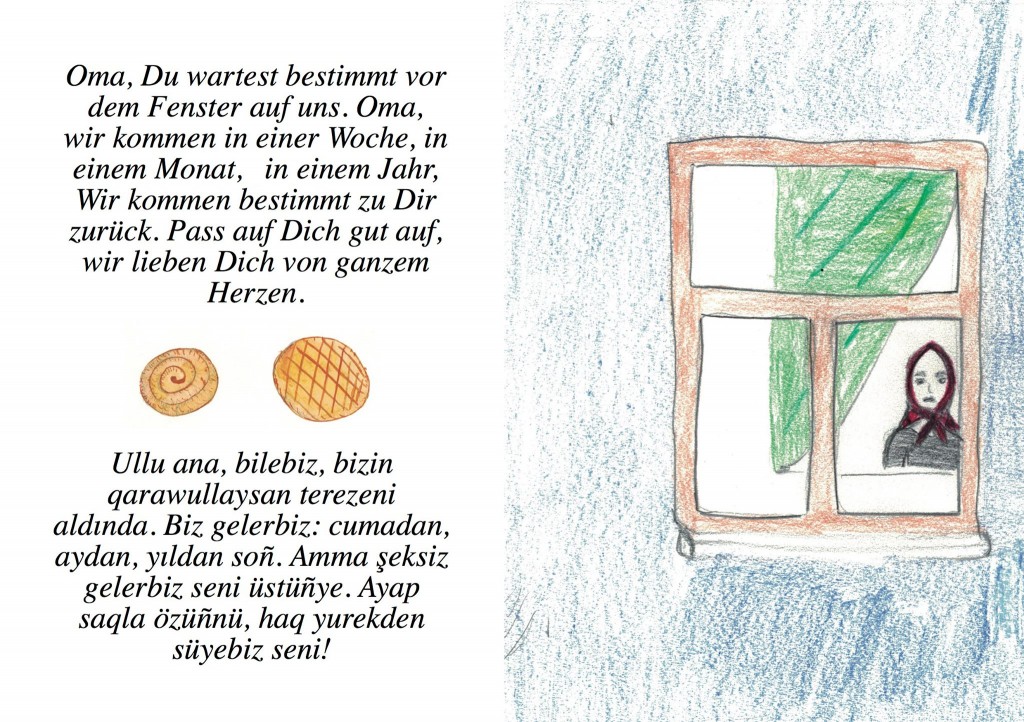
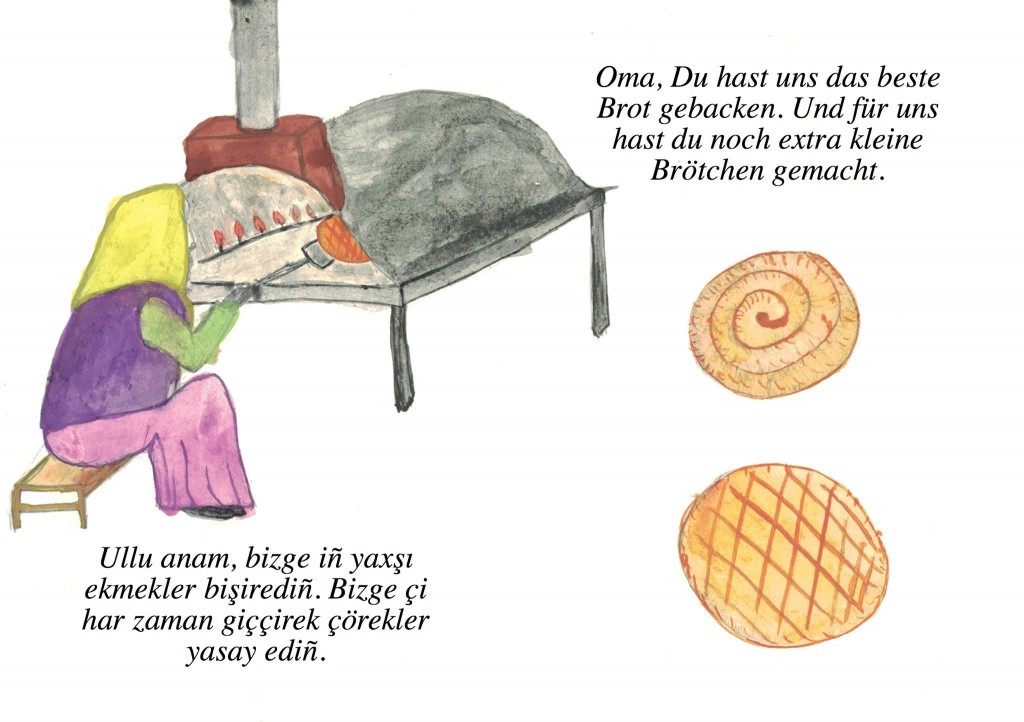
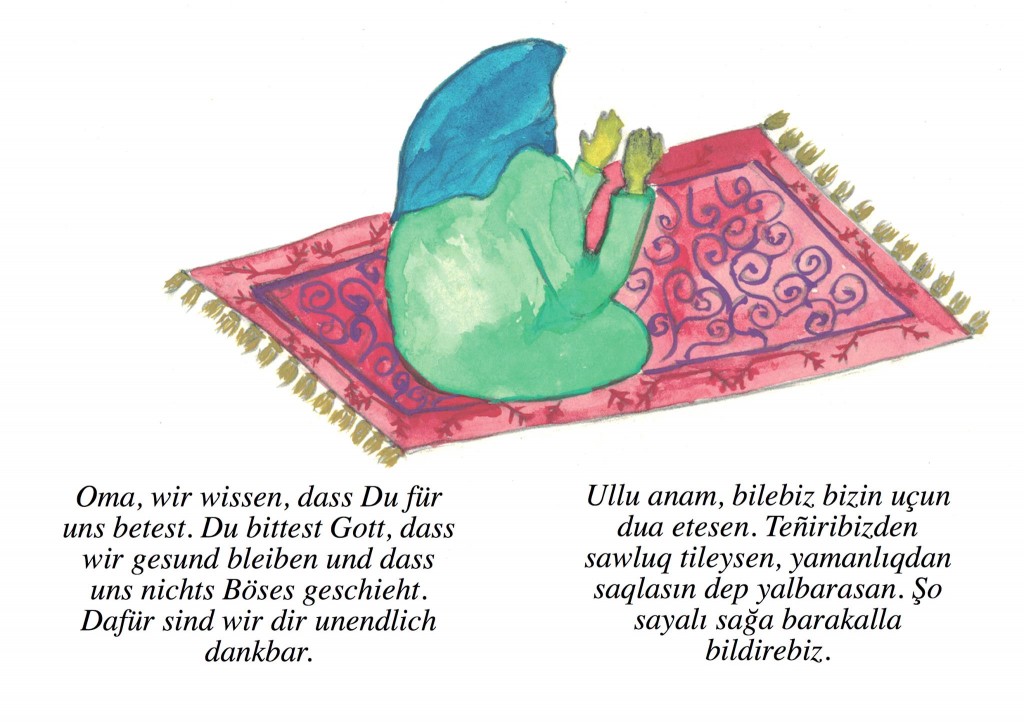
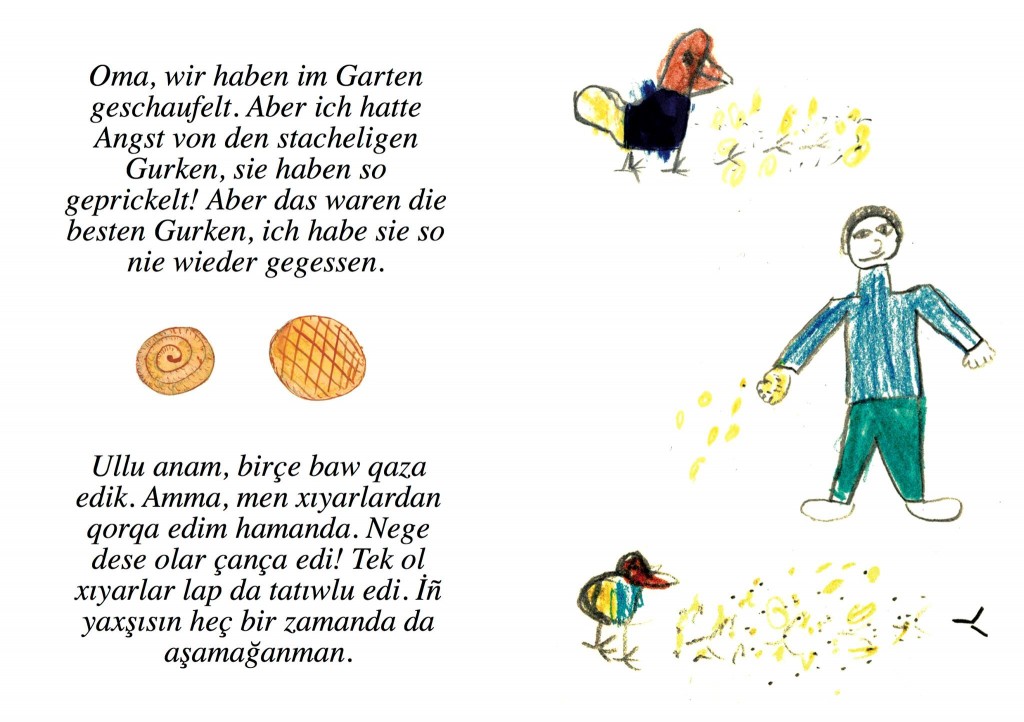
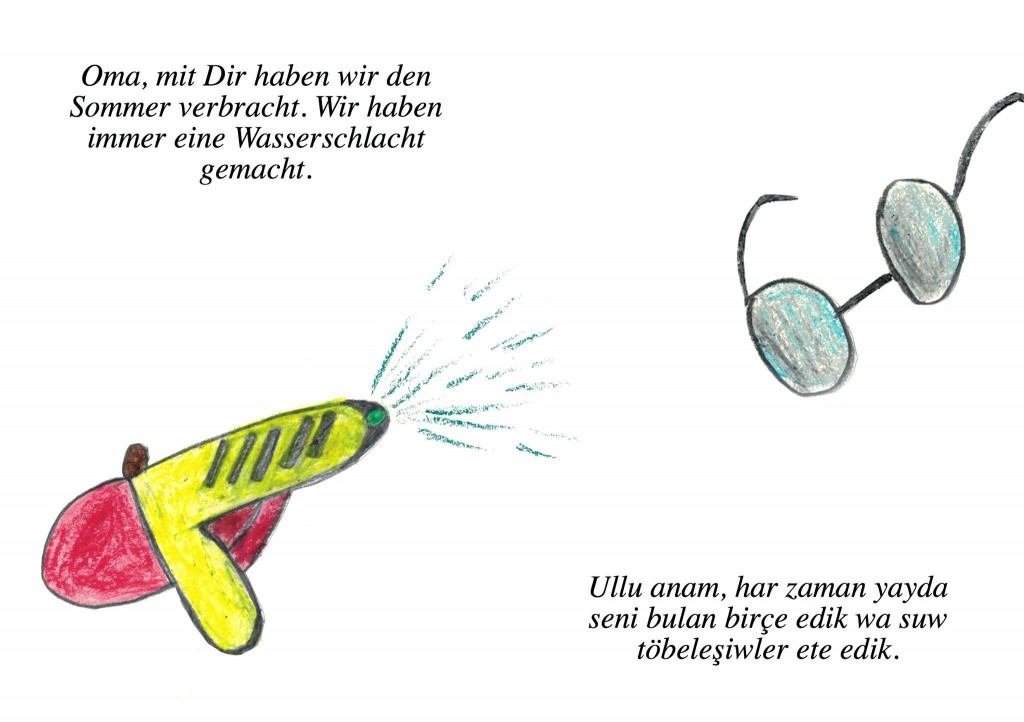
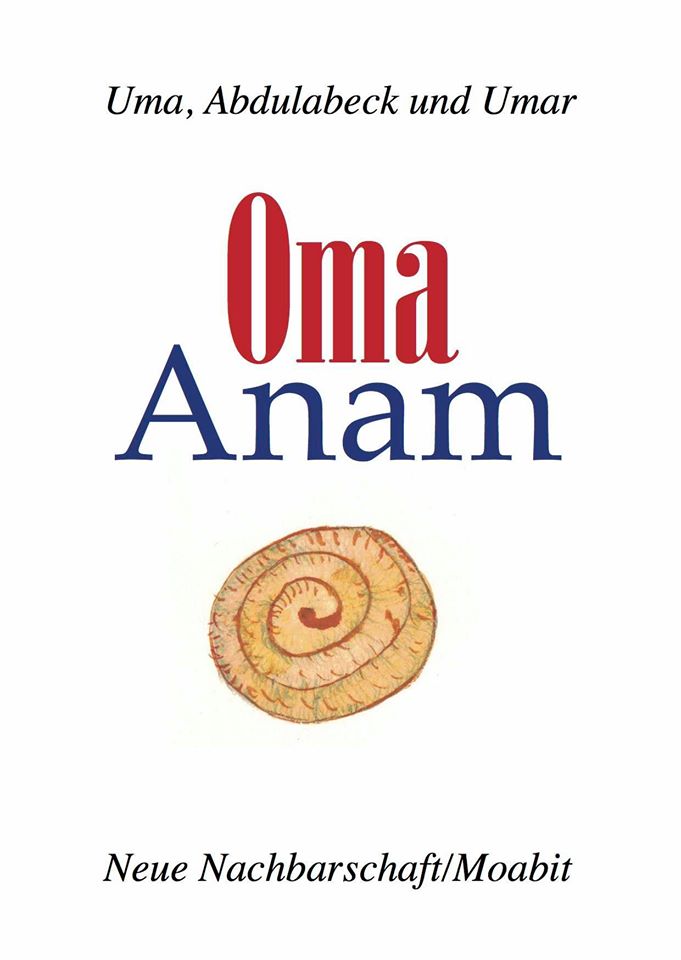
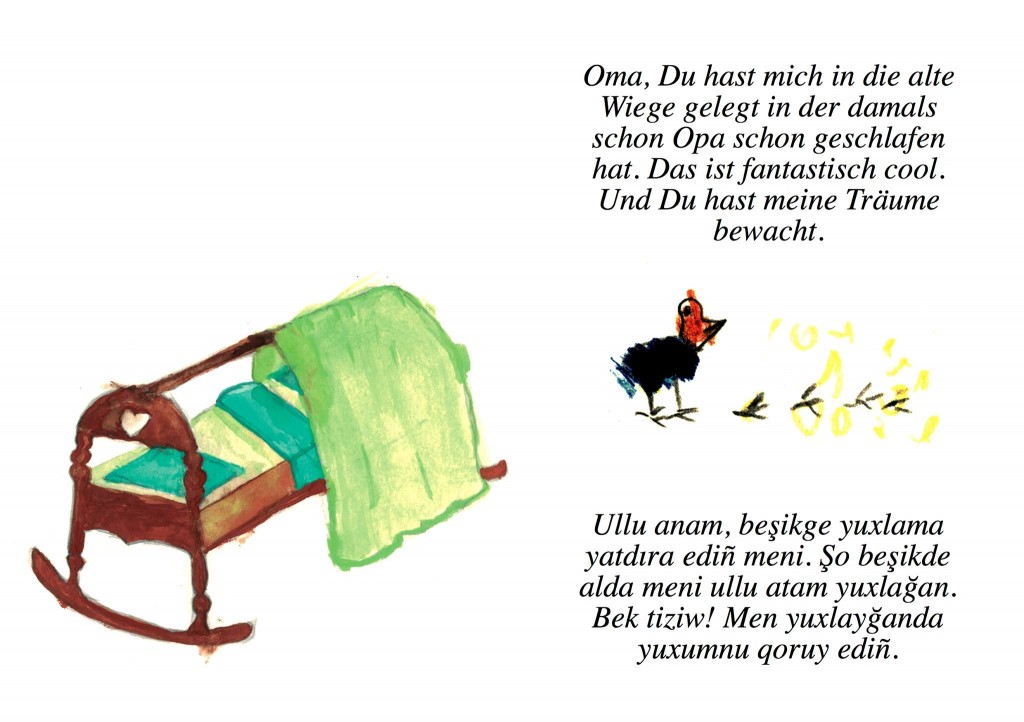 June 12th We would like to introduce our participant Yevgenia Belorusets: we are so happy about her participation! Coinsidentially, simultaneously, she was awarded the HKW International Literature Award 2020 for her book “Glückliche Fälle”. The book has been published by Matthes & Seitz, Berlin. This reading is in German, but we invite you to meet Evgenia on the parasemantic level:
June 12th We would like to introduce our participant Yevgenia Belorusets: we are so happy about her participation! Coinsidentially, simultaneously, she was awarded the HKW International Literature Award 2020 for her book “Glückliche Fälle”. The book has been published by Matthes & Seitz, Berlin. This reading is in German, but we invite you to meet Evgenia on the parasemantic level:
Yevgenia Belorusets is a photographer and writer and lives in Berlin and in Kyiv. She is the co-founder of “Prostory”, a journal for literature, art and politics, and a member of the interdisciplinary curatorial group “Hudrada”. Her works move at the intersection of art, literature, journalism and social activism, between document and fiction. Her artistic method was established in her long-term projects such as “Gogol Street 32”, which portrayed the residents of a communal apartment building during their daily activities in a slowly decaying living environment, or in the project “Victories of the Defeated”, which included series of documentary photographs, texts and interviews and was dedicated to the coal miner communities, which continued to exist in Eastern Ukraine on the very edge of military conflict. To accomplish this work Yevgenia Belorusets visited between 2014 and 2017 cities near and in the warzon of Donbass Region in Ukraine. In 2018 / 2019 she has published a book of stories called Fortunate Fallings (Shchastlivyie padeniia) about women living in the shadow of the now-frozen, now-thawing conflict in the Donbass region, caused by Russian military intervention after the Kyiv Maidan of 2014. The publishing hous Matthes & Seitz issued it in Germany in 2019.
Yevgenia Belorusets, 2020
June 11th
Today we post a letter and two paintings from Raha Amiri:
Raha Amiri, Batwoman, 2020
Raha Amiri, Burnt Nest, 2020
Greeting and regards
With respect to all
I am Raha Amiri 24 years old from Afghanistan i have a girl she is 8 years old we are in Greece, Moria.
I would like to talk about my experiences. My work is about beauty and art with women. I am really exited sharing my paintings and my feelings to “The economy of borders” with all of you. “Burnt Nest” is one of my paintings about all human around the world who lost their home and their family. So I wanted to share my feelings sympathy with these people. My second painting is “Batwoman”, about all women who have forgotten their power and considered themselves weak. I shared my feelings about refugees with paintings because each of them has embraced their sad possessions stories. How beautiful it is to be in solidarity, understand each other, so we all end up in this house whose name is the world so we dont forget to give love and affection to each other. Let’s build a beautiful world for a big family because we are a family in the world.
Thanks to the friends who efforts hard for this beautiful program wish for victory and peaceful
My contact instagram: raha.tattoo1995
Facebook: raha amiri
online marathon: the economy of borders ^^ we lost our soft soul, by crossing the borders
We would like to thank all participating artists and activists. It is great, what we achieved only in a few weeks. Thanks to everyone for your participation and involvement, for your support yesterday at the opening and assembly. Tomorrow we start our online marathon. Please, stay with us for the next four weeks.
online marathon: the economy of borders ^^ we lost our soft soul, by crossing the borders
The exhibition will be accompanied by a four week long online marathon. The participants will be making daily contributions referring to their work, the socio-political situation and their political demands.
Media partners: Neue Nachbarschaft/Moabit, Moabit Mountain College (Berlin), The House of Women for Empowerment & Emancipation (Athens), Prostory (on literature, social criticism and modern art)
Welcome speech by Joulia Strauss
This junta space, overwritten by so many minoritarian stories, seduces you into telling your personal one: to tell the story of the Mari tribe, claustrophobically imprisoned in the Russian “federation“. To tell you how the land of the whole population that has a deep knowledge about the equilibrium with the environment, is drowned under water by the illegal but profitable construction of a hydroelectric station. Yet we use our indigenous knowlegde in the middle of THIS political situation to create spaces of
No Border! No Nation!
So we salute our sociopolitical ancestors who fought for freedom of knowledge throughout the empire: Jean-Jaques Rousseau for connecting utopia of society with pedagogical concept, Robert Owen for the gender neutral community. We thank “nihilist“ Vera Figner for founding schools in villages of the deep Russia, Hamburger Torschule for having no plan and no goal, Dennison Street School for school deniers, Ivan Illich for the de-schooling discourse, Janusz Korczak, the founder of Children’s Parliament, for walking into a gas chamber in solidarity with his “young adults”. We thank the open source activist Jesus Christ and his colleague Aaron Swartz.
Personally, I’m grateful to my teachers: Timur Novikov, founder of New Academy of Fine Arts in St. Petersburg; Bernd Willim, founder of the first Berlin high-end Film School, for letting me teach by turning the 3D sculpture seminar space into a club; and I’m grateful to Friedrich Kittler, the founder of the School of Berlin Media Theory.
We are grateful to the school called Parliament of Bodies for hosting the School of Everything.
I salute all our precious participants who see education as decisive for social change, who instigate politically motivated and artistic initiatives for sharing knowledge. Thank you for taking up our invitation to share your practices, manifestos, and paradigmatic proposals.
We are here not to discuss the problems of education, but to address political issues through the prism of the central theme of documenta14, which is learning. With “Learning from Athens” for the first time learning is set in a central relation to art.
Art emancipates itself from the peripheral status of educational or public programs by declaring them, or this learning, as the very heart of the process called art. Art-as-education is the next step after “activist art”. Marginalized for rejecting commodification, we are disturbed by the hyper-capitalist system that violently smashes art that resists the extracting logic of the investment markets. Many of us are part of the global movement for the horizontalisation of art institutions.
We grew up with documenta. It was our school. As tax payers, or just as community members that are a part of the economy of attention, we do have expectations. We, in defense of the honor of the art and the freedom of knowledge, have experimented in not giving away the documenta.
We are here while the curator of Public Programs, Paul B. Preciado, beams the “periferric and minoritarian“ issues of race, gender and disability into the center: into the Rotunda of the Museum Fridericianum.
Banks are tanks. Peripheral European countries, subjected to colonial aggression, are the centers of imagining alternatives. With us, the secession war between art and market, the knowledge of OXI, the SPLIT, and the constitutive work of sharing oneness of art and philosophy, moves into the center.
Among the many things we have done during the School of Everything in Kassel, we abducted Paul B. Preciado, and under the thread of loss of street credibility forced him to tell us his uncensored thoughts. I quote some of them:
“In a big exhibition everything prevents you from doing what you have to do”.
“There is a point when we have to say: Stop”.
“Because of the conditions of work… which have to do with mechanism of this mega exhibition, we are fucked”.
“Maybe one of the possibilities would be the PoB to exist and continue to work beyond d14 itself … growing independent from the institution that kind of hosted it at the beginning and being taken by other people, hopefully not by me, I’m exhausted. That other people might take Parliament of Bodies as a methodology, as a structure, and continue doing things … in Athens, cause I think this is the only meaningful thing: if we in the documenta14, all the project, if we are able to remain after d14. …This will be the beginning of the project”.
“If we are able to do something, if the institution is gone and when the money is gone. That’s the moment when another institution is possible. This is the beginning of something”.
I would add that our documenta is not only too big, but regressively drags all the art and not art towards the conservative format of an exhibition, opportunistically intertangled with the financial dictatorship we live in.
The institution itself states that the only solution is the institution of a different kind. And that this would be the beginning.
Today we change the perspective from which history is written. According to our version, this something, another institution that Paul hopes could exist after documenta14 is gone, already existed before it arrived. Of course this institution had and has a different epistemological shape than the Parliament of Bodies, but it is driven by the same impulse as the one documenta14 has now learned from Athens. It is about losing faith in neo-liberal institutions. Making self-organized infrastructures. Knowledge always depends on the platforms of its emergence. To have been hosted by an institution and then to have grown free is not an option. What is different is the irreducible “how”. The body as the working ground of the change cannot be passed down to anyone else. This project has to be run by Paul, and we very warmly welcome him to do so as part of our polymorphous struggles in Athens.
Avtonomi Akadimia, a free access intercultural university, active since June 2015 in Athens, practices the free sharing of knowledge by inviting artists, philosophers, scientists and activists to be involved long term in deep exchanges with a world-wide community of participants. Avtonomi Akadimia operates on/in the topos of origin of the patriarchal concept of the western pedagogy, that is, in the original garden of Plato’s Academy, Akadimia Platonos, an archaeological site in Athens.This is the place the word Academy is derrived from. Avtonomi Akadimia sees the root of the empire with its principles of building wealth through exterminationalist extraction in the “classical Greece”, in the Politeia. Avtonomi Akadimia is a community of people who have lived here for a long time, of those who are based in Berlin but frequently visit Athens; as well as of those who have recently moved to Athens from the Middle East. Together, we are a de-elitized and de-colonized remix of knowledge formed by a geopolitical reality which has always pulsated in Athens despite the invention of European empire. We have lived in the militarized state for 2200 years, and it is not enough to remember its symptoms in different forms. Greece, Chile, Biafra, Ukraine, Dakota Pipeline, Balochistan, Mari El. Junta has never been over. Our European democracy with its educational institutions is a military infrastructure of the US. Education is an extension of punishment and of the military industrial complex. Less and less poetry, less drawing lessons, less cultural studies. The Polis divided alphabetization into writing and rythmic-metric musical terminology. No rhythm, no dance, no melody. No pleasure. Sufferance and debt! Segregation of art from the social domain, leading to what Greeks themselves called lyraless time, time of war. Junta.
But art as technê has now liberated itself from the linear strains of modernity and takes its role in the society anew. It is coming to de-logocentralize the junta Polis. And this is the music lesson from Athens.
(anarchia song, played on the lyre and sung by all participants and guests)
Tonight, we celebrate the end of documenta. documenta as a format of modernity no longer accommodates the needs of art. It may continue as a zombie. This is the truth Kassel is so afraid of, and this truth comes from Athens. Herewith the spiritual body of art abandons the body of a blockbuster institution of documenta. documenta, born in Kassel in July 1955, died in Athens in July 2017.
And we will see how this split into a multipolar structure of incommensurable but collaborative communities which most of all remind of Parliament of Bodies, or the School of Everything, fractally replicates itself in the breakdown of the global empire.
ART TODAY IS REVOLUTION.
